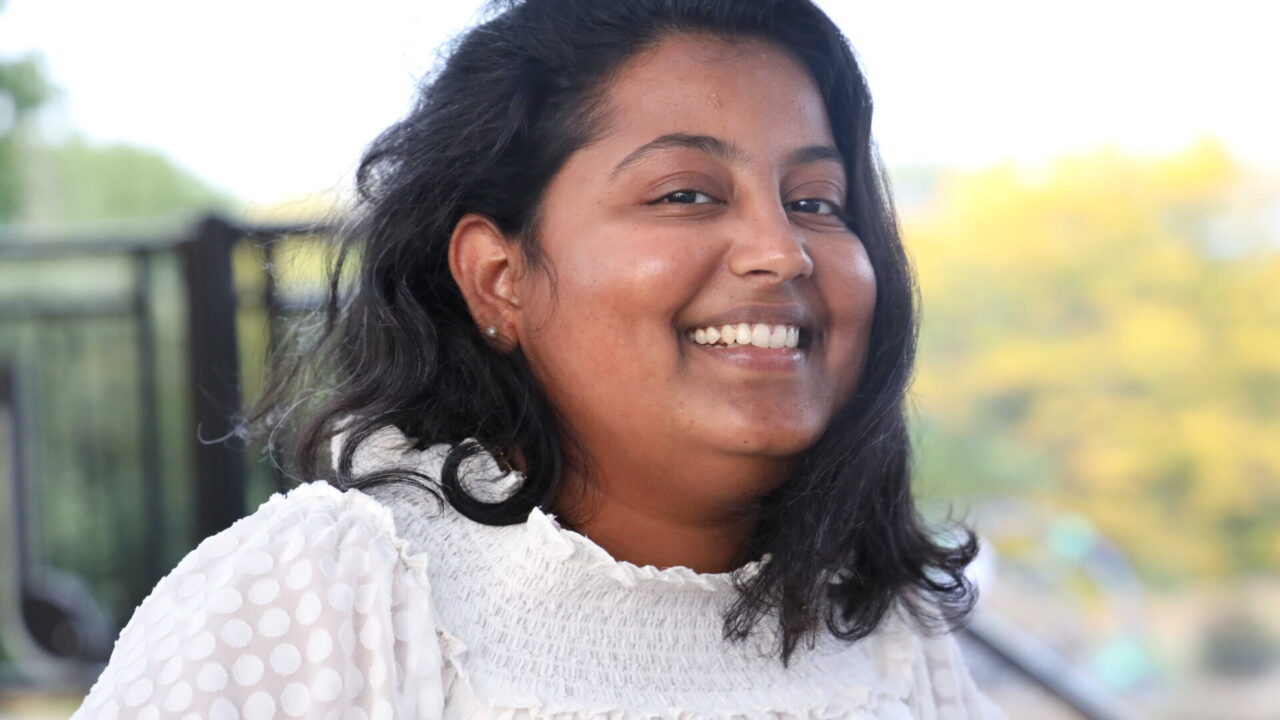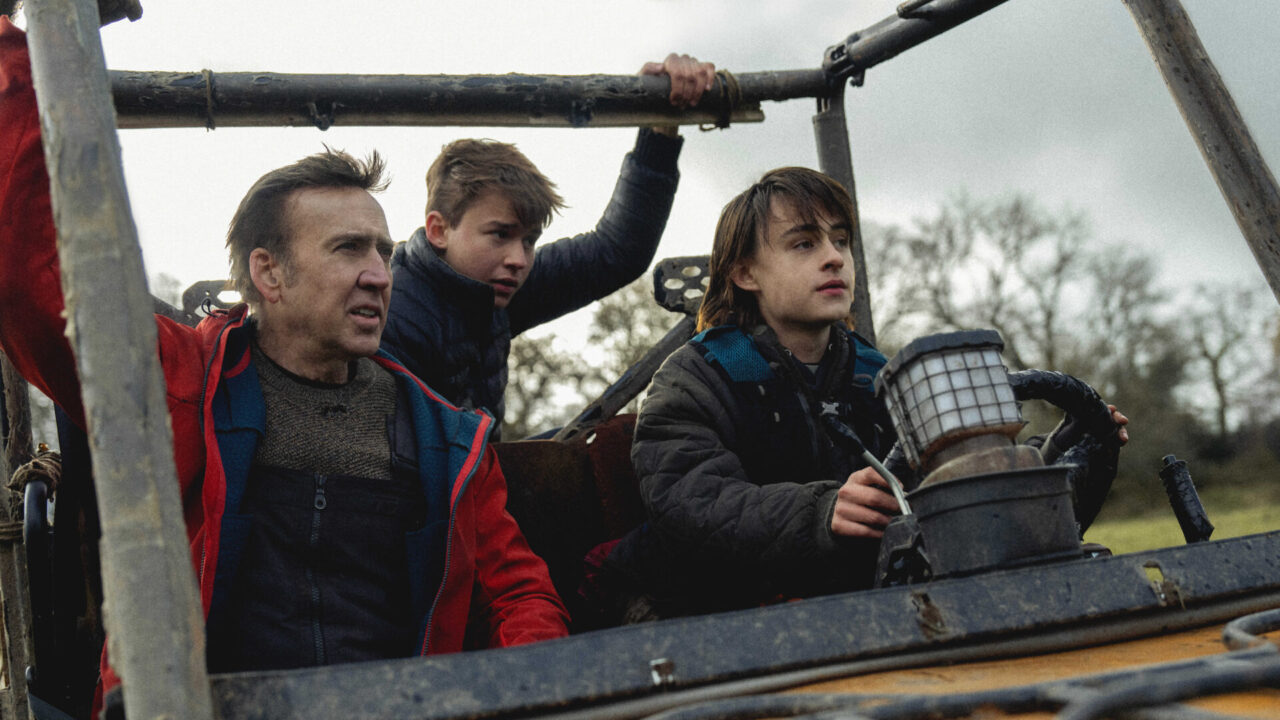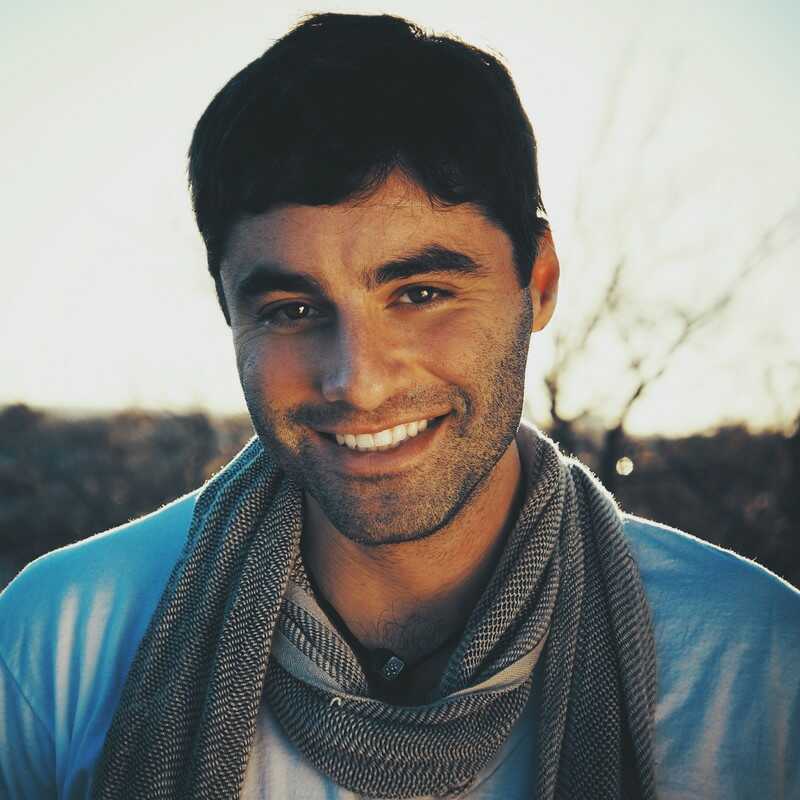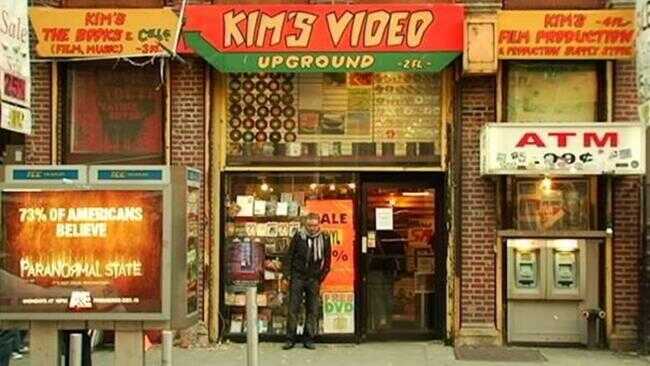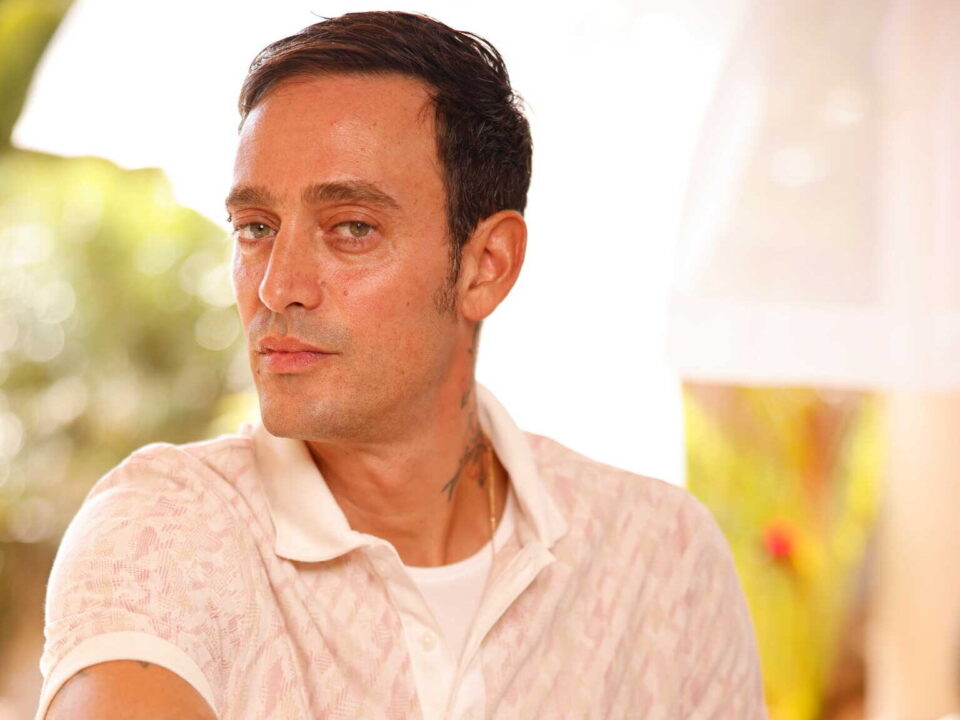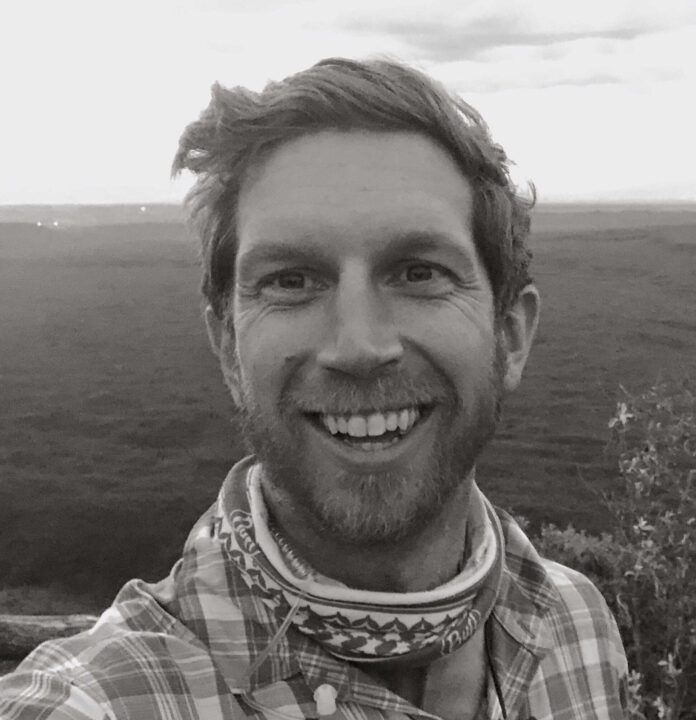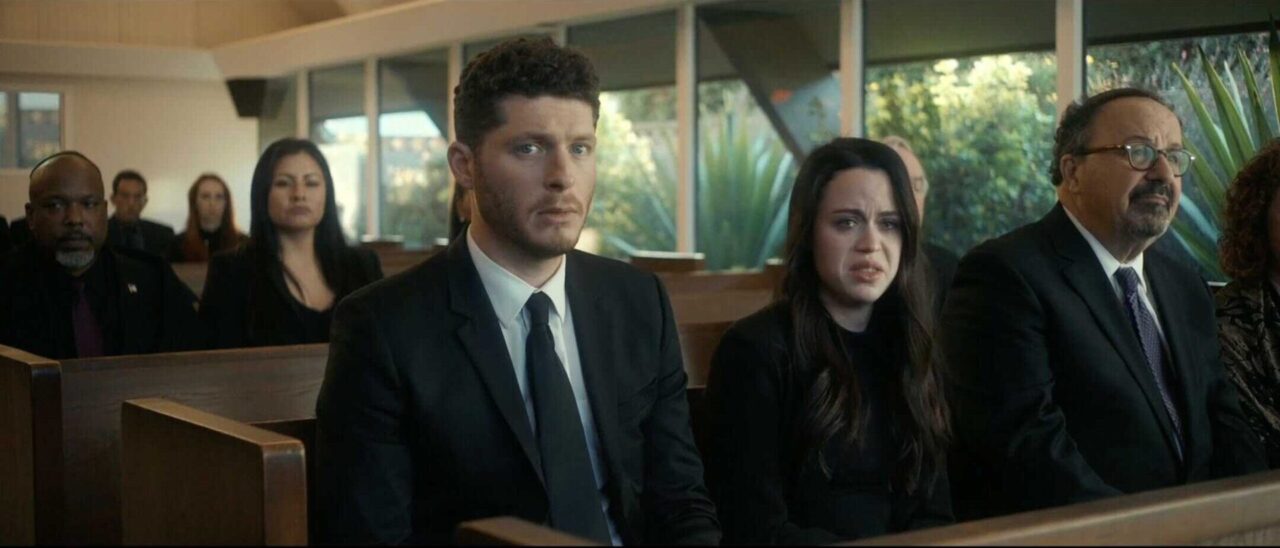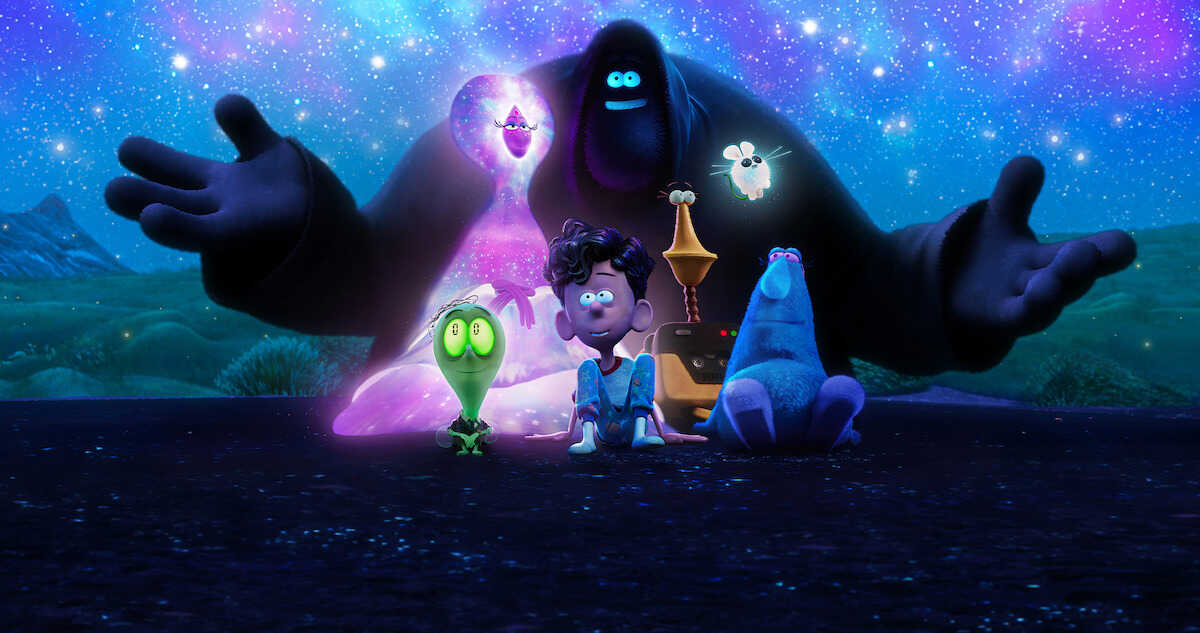Bhavana Goparaju Brings Third-World Stories To the Forefront
Bhavana Goparaju didn't always know she wanted to be a filmmaker. But after a chance encounter where someone asked her to write a story after reading her poems, she realized filmmaking's power to tell stories. Now, an accomplished producer, Bhavana has made multiple films that have debuted in such prestigious film festivals as Berlinale and Busan International Film Festival. Now, she's ready to share those stories.
In our exclusive interview, Bhavana discusses growing up in India and how she got her start in filmmaking, as well as the humanist stories she's drawn to telling while continuing to spotlight third-world people and stories.
Cinemacy: It’s my pleasure to meet you, Bhavana! Where were you born, where did you grow up, and where do you reside?
Bhavana: Likewise! I was born and brought up in the city of Warangal, Telangana, in India. I currently currently live in Minneapolis, Minnesota.
Cinemacy: Did you always want to make movies when you grew up? When did you know you wanted to be a filmmaker?
Bhavana: Actually, no. I never thought I would be a filmmaker. I wanted to capture and tell stories, and learn and explore life in general (that of different strata of people). But I never thought I would be a filmmaker until someone in the industry read my poetry and short stories on social media and suggested I write a story for them.
The whole process of learning to write a story, logline, and script was so mesmerizing. Since that experience and after thinking deeply about how filmmaking is a powerful tool to tell stories, I decided to pursue life as a filmmaker.
Cinemacy: What was the first film project you worked on?
Bhavana: I worked as a lyricist first in a Telugu film. Then I worked as part of a writing team in a Hindi movie while trying to write lyrics in between. Then, after some struggles getting to write the kinds of stories I wanted to make, I moved into producing. I observed the power that producers had in controlling which movies could be made. According to my scenario and skillset, I strongly felt that producing was the way to go.
Cinemacy: What have you found are the most important qualities to have as a producer?
Bhavana: Finding solutions no matter what, being committed to the film's vision, and having a combination of creative spirit and strategic soul.
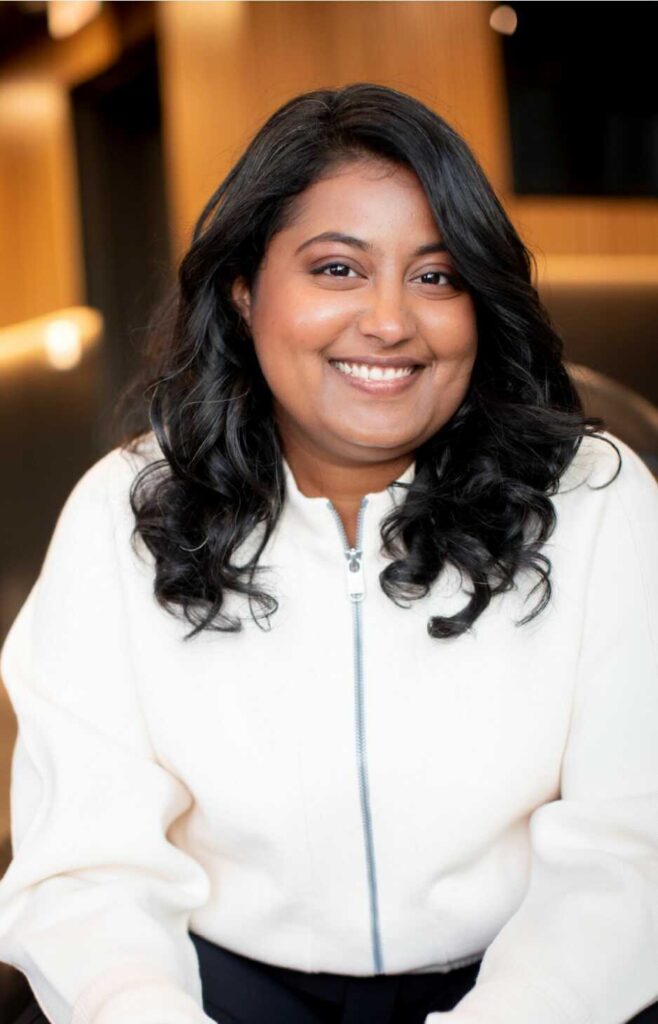
Cinemacy: You've made an impressive amount of movies to date, having produced films that have played globally. What have been the most challenging moments you’ve had to overcome in your career? What have been your proudest?
Bhavana: I feel like the challenges increase with every next movie I make, which I also feel is a sign of progress. Every film I make is one step further either in the budget, the vision, the team, etc. The most challenging so far was making In the Belly of a Tiger. Investors backed out during COVID-19. And even after figuring that out, because we shot in a village in the northern part of India which our crew weren't familiar with, a lot of line production fell out of place.
Also, because of the budget constraints in independent cinema, every day was a problem-solving day. I had sleepless nights figuring out how every day would go as planned and making sure not to distract the director and let the final output go as planned, which was very different from other projects. The series of events that happened in this film made it feel more challenging.
My proudest moments are of course going to Berlinale, and Maadathy’s North American screenings. Maadathy premiered at Busan Film Festival in October of 2019 and went on to have a Latin American premiere at Cartagena, but COVID-19 happened.
It was a huge setback for an independent film that was doing so well getting right into COVID-19. That also got us thinking about what to do from there, to which we thought of independent individual screenings, which became like a tour. Watching people watch the film, hearing what they had to say, and the audience coming to talk about unseeable caste when it became a conversation initiator on caste-based atrocities in India felt good.
Cinemacy: In the Belly of a Tiger World premiered at Berlinale this year–congratulations! What was the reception like for the film, and where can audiences see it?
Bhavana: Thank you! It was great. We had sold out shows in Berlin. Audiences and Critics who saw the film had all great things to say. So, it’s good! Now, we are focusing on premiering in other premiere film festivals in North America and Asia. After that, we want to go to the public releasing in theaters/OTT streaming.
Cinemacy: Can you tell us more about the production company you founded, Jeevi Films? What is the company’s mission, and what are some of your fondest memories and proudest moments?
Bhavana: Jeevi means "living being" ("human being" in my mother tongue, Telugu). The mission of Jeevi Films is to tell humanistic stories, especially those of third-world cinema, and bring them to the world, find audiences, and create spaces for such stories for the sake of the world itself. The first production from Jeevi Films is In the Belly of a Tiger. Every moment making this film and since Jeevi Films was established is a revelation and a learning experience for me. Working with as passionate a team as one can be one can be will always come first in the list of fondest moments.
My proudest moment is that the first production of Jeevi Films premiered at Berlinale 2024. I am also personally proud of the Jeevi Script Fund, which will be unveiled to the world soon.
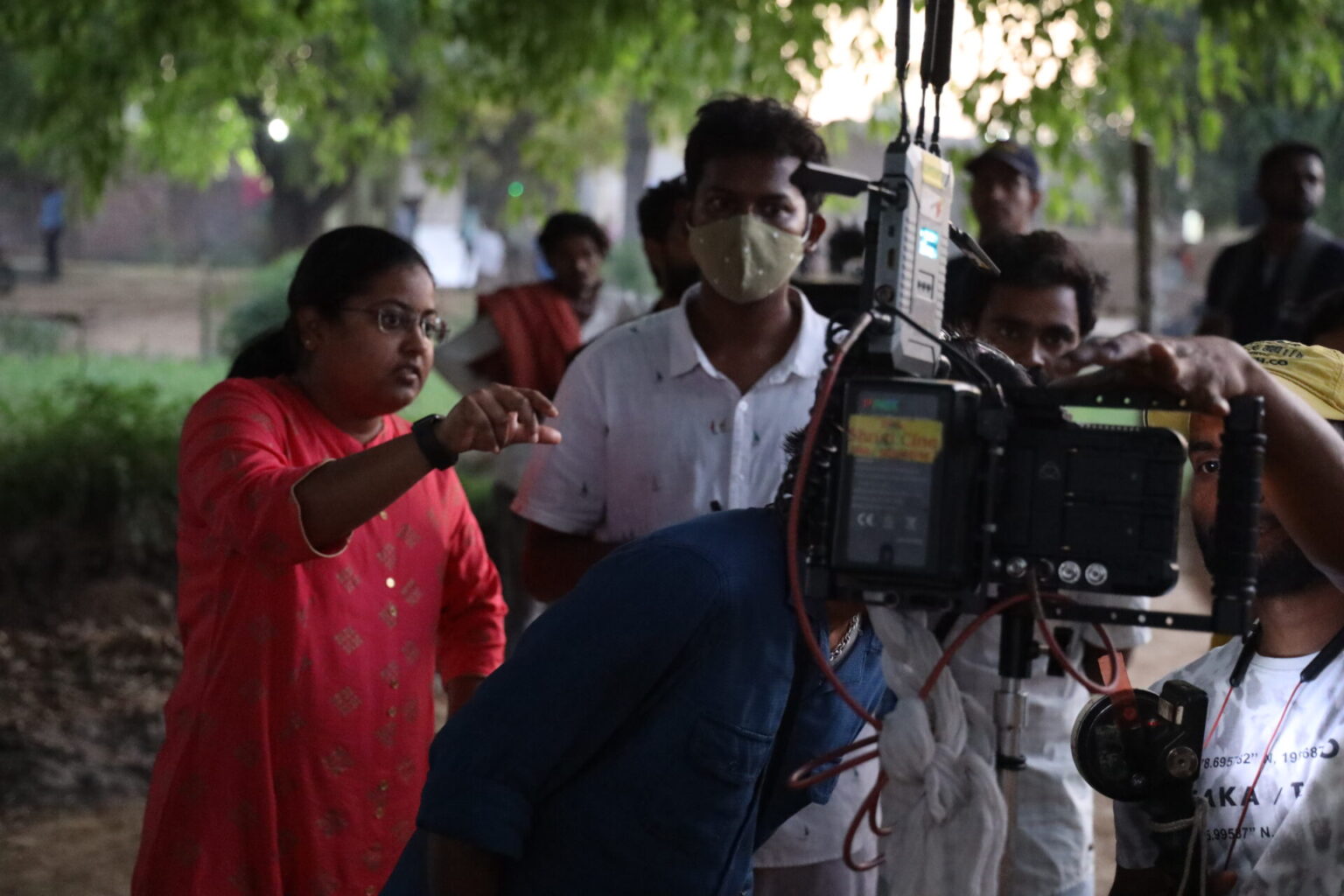
Cinemacy: What have you learned about working in indie filmmaking that more aspiring filmmakers would benefit from knowing?
Bhavana: Make sure you can narrate the story behind the story of your film. Only boundaries or limitations are what we create in ourselves. If you think we need this person for our film or a certain thing for our film, go make it happen. Don’t hesitate to approach anyone. Only crazy people can do and be magical.
Cinemacy: Who are your filmmaking heroes and dream collaborators? Do you have any next projects that you’re excited about?
Bhavana: I would say Charlie Chaplin, Ava Du Vernay now. I wish Charlie Chaplin was alive now, but want to work with Ava and Anurag Kashyap. I had an actor Irrfan Khan who I wanted to work with but (he passed). I also really wanted to work with The Daniels of Everything Everywhere All At Once. I want to pick their brain on the screenplay and visual miracle that they created on the screen through their film.
Yes, I have a project which is in the later stages of development that I am excited about.
Cinemacy: What messages and themes are important to you that you wish to explore in your future work?
Bhavana: I am also exploring the social care systems in the USA and homelessness which got to me since I have been in the USA. Also the contradictions, and complexions of the third world in the first world.
Also, as a nature lover, I have been exploring to experiment on over layering of scientific biological systems on the social systems we built. But I am assuming it might take more time than I am anticipating right now.
Cinemacy: What do you hope audiences take away after seeing your films?
Bhavana: There is life that can be unknown and new to us, but there is life, love, fight, and hope in every form. All we need to do is look at it and learn from an empathetic perspective. And, if all life seems hopeless around us, we need to be that hope.
You can follow Bhavana Goparaju on her Instagram, Jeevi Films Instagram, Facebook, Linktree, and Jeevi Fillms website.
'Arcadian': Nicolas Cage's End of World Thriller With Heart
Arcadian offers exactly what I want to see in an apocalyptic thriller. Terrifying creatures loom outside a small family's remote farmhouse, waiting to consume them. Cleverly constructed traps and weapons are at the ready in case they need to defend themselves. Heart-pounding sequences of those creatures bursting through boarded-up doors with bone-chilling jowl snaps that cause the hairs on your neck to stand straight up. And yet, while these moments are spectacularly executed, Arcadian is not a traditional horror movie. Focusing on the smaller moments of life during end times, like a joyful run through the woods, a first kiss from a pretty girl, and the bond between brothers and their doting father, director Benjamin Brewer crafts an emotional, tender, grounded coming-of-age film that subverts typical genre conventions.
Set against an apocalyptic landscape, Arcadian opens with Paul (Nicolas Cage) desperately sprinting while cradling his twin boys, evident that he is their only protector in this hellscape. Years later, Paul and his sons have aged: himself, older, and the infants, now teenagers. They are the only people around for miles, living a life of near solitude after the apocalypse wiped out most of society. The three upkeep their home like self-sufficient sailors, cooking, cleaning, and creating reinforcements to keep the life-threatening, otherworldly creatures at bay. Paul isn't one to let his guard down, especially around his children. "Are we not men!?" he exclaims, driving a steak knife into the dinner table. Ever the devoted sons, they reaffirm their commitment to the family unit.
While the twin brothers share the same age, they are also noticeably different. There's Joseph (Jaeden Martell), the inward intellectual who hides behind his flop of hair to engineer weapons and traps to protect his house and father. And there's Thomas (Maxwell Jenkins), the more adventurous of the two who runs through the woods each day to visit the neighboring house where his crush, Charlotte (Sadie Soverall) lives. The brothers' spats are typical, especially when Thomas misses curfew. Paul warns his young son of the danger that lies in the woods, a warning that Thomas mostly shrugs off until he encounters the creatures that threaten his life. Paul thrusts himself into danger, an act that alters the family's safety and dynamic and forces the two brothers to grow up and heal wounds quickly to save their lives.
https://www.youtube.com/watch?v=HNARuSROxbM&ab_channel=RLJEFilms
Arcadian captivates and impresses with its combination of special effects and emotional heart, both of which can be attributed to the direction of Benjamin Brewer. With previous credits such as Visual Effects on Everything Everywhere All At Once and the writer of Netflix's crime thriller Reptile, Arcadian is his first solo directorial debut (he also co-directed Nicolas Cage in The Trust with his brother Alex Brewer). Beyond its technical impress, it's a grounded coming-of-age film similar to Stranger Things, with young people needing to save the world. Brewer shows the small moments with gentle observation. Some are slow and somber which, at times, adds unnecessary weight that the film is forced to overcome. Some of those moments could have been better served with more moments of joy.
Speaking of twists, I was surprised about the smaller presence of Nicolas Cage in the film. It's a bit of a bait-and-switch marketing Cage front and center when really, his character bookends the film. He doesn't offer a zany Nic Cage performance, he's more subdued. The story largely rests on the shoulders of Jaeden Martell and Maxwell Jenkins, who give performances that are wise beyond their years, as does Sadie Soverall.
Overall, Arcadian is a visual and tonal achievement, with great cinematography, although the story does leave a bit to be desired. By being so grounded and raw, it fails to get into the mythology of the creatures, or even let itself have as much fun as it could. Could Arcadian have been even more enjoyable as a silly popcorn flick? Undeniably, yes. If you're looking for a monster movie with heart-pounding action sequences and tender coming-of-age moments that show the beauty in family during the end of the world, Arcadian is for you.
'Arcadian' opens exclusively in theaters on Friday, April 12th.
Derek Franzese Spotlights The Beauty of Underrepresented People
With global conflicts, the rise of AI, and underrepresented people continuing to be marginalized, the world can be an overwhelming place. Some people can even become paralyzed with fear and cynicism. Or, if you're Derek Franzese, you choose to tell stories that illuminate the best of people and life.
Related: Review: 'When Unfettered' Challenges the Divisive Perception of AI
In our exclusive interview, Derek discusses his short film, When Unfettered, which tells the story of an AI humanoid who discovers what it means to feel emotion after encountering and befriending a special child. The director and co-writer talks about his inspiration behind the story, what he wants people to know about working in indie film, and his goal of spotlighting underrepresented communities onscreen.
Cinemacy: It’s a pleasure to meet you, Derek. First off, your short film, When Unfettered, is a wonderful, heartwarming, and profound look at humanity. It also explores how life will change with the growing technology of AI. What was the original idea for this story?
Derek: Christopher Dick (producer and co-screenwriter) has been working with a company that is involved in AI for quite some time. We started discussing that most films, books, etc. show AI as this kind of evil. Even if it decides to help humanity, it generally decides the best thing for humanity is to eradicate it. So we wanted to go in this direction of showing that not all humans are awful, and perhaps when this being becomes sentient, it does so by seeing love.
So I went with the idea that the android, for lack of a better term, comes to feel her first emotion, love, by befriending these innocent kids. That she could see this immense compassion in communities that I don’t feel we as people give enough credit to.
Cinemacy: You co-wrote the film with one of the film’s producers, Christopher Dick. What was your writing process like? What ideas or themes did you want to ensure were in the story? And, were there any breakthroughs or discoveries when writing?
Derek: The process was essentially, we came up with the idea of AI learning to feel love, and then I ran with it. I’d send him drafts and he’d give notes but we were pretty aligned from the beginning so if I was stuck on something we’d quickly chat and we got the writing done pretty quickly.
As far as themes, I wanted to use Ash as a metaphor for so many of the issues in our world right now. It’s about immigration, racism, prejudice, being different than others, and how that affects us. As well as fearing things we don’t understand, innocence, the beauty of underrepresented people, and art and dance as something we should find our humanity.
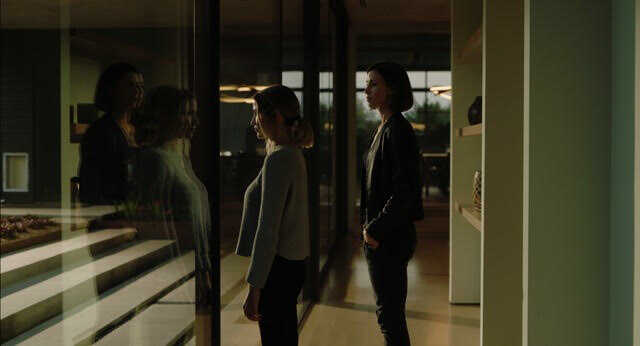
Cinemacy: When Unfettered follows a wide range of thoughtful emotions, such as grief when losing someone, anxiety over a technologically advanced future, and the feeling of connection with people. How did you set the various tones on set while shooting each of these different scenes?
Derek: We used the lighting in the opening scenes to establish this cold, sterile cool tone which I felt was a bit more of a representation of what we generally see as the future. A little more gloomy I guess but the scene where the father passes away I wanted to make sure was a little more of a serene time even though it’s still this empty room.
We kept the set while filming at the house more peaceful and a little more somber to help the actors and when we did the death scene, we cleared most everyone out and let Carly and Natalie just go with what they felt. Once Ash left the house, we tried to just have fun, create some things for her to discover, and keep it bright. We started the shoot filming the scenes with the kids so that was easy for us to make enjoyable.
Cinemacy: The film’s main character is an AI named “Ash,” played by Ashley Whelan. What was the casting process like? What direction did you give her for this character, and was there anything you discovered in the performance she brought to it?
Derek: Ashley and I have known each other for so long and we’d always wanted to work together so Chris and I had envisioned her in this role while writing it. We did our due diligence though and had a casting director help us get audition tapes from all over the US. We wanted to make certain. Probably watched more than 100 and Ashley was still the role.
One of the directions I gave was watching videos of what the “perfect” walk for a human would be since most of us walk improperly. We watched a lot of stuff from doctors and physical therapists so she could focus on that, to begin with.
Then we talked about micro-expressions but I’d been sharing the script drafts with her and she was already creating this character by the time she put herself on tape so I didn’t have to do much directing. She was just wonderful in how she showed this dryness but you cared about her. Not an easy character.
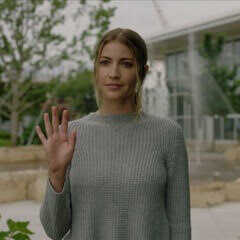
Cinemacy: I noticed that the film has a warm, inviting, and optimistic view of AI when some feel a bit more anxious about what that will mean for humanity. Do you feel more optimistic about AI versus pessimistic?
Derek: I don’t feel optimistic, honestly. I’m nervous about it but I wanted to show that maybe twenty years from now there will still be beauty on this planet, that we can still be wonderful as humans. That we won’t completely destroy all the plants and maybe the earth won’t be some nuclear wasteland. I think there may be some benefits for us with AI but When Unfettered, in my mind, really isn’t a comment on the positivity of AI. Ash is simply a representation of another thing humans will be frightened by and the prejudices of today.
Cinemacy: The film is beautiful, with two distinct looks: more formal, muted color shots in the opening scene of the home versus handheld, colorful images in the park. What direction did you give your director of photography, Joe Simon, to create these worlds?
Derek: Exactly what you just said. Let’s make the house more rigid and less welcoming. Everything should be more perfectly placed, cool blues. Since you have such a compact amount of time in a short film, we shot the house as if it were a character. "Sterile" was a word I used a lot.
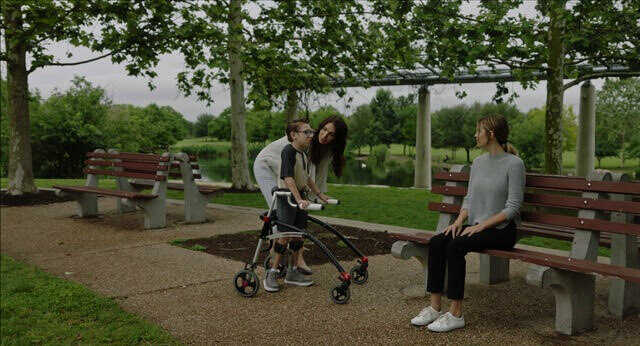
Cinemacy: You also feature kids of underrepresented communities, including disabled people in key roles. What was that like to write as well as shoot on the day?
Derek: Great. All around great. Filming with the kids was so much fun. We really just gave them an area and said let’s have a party. Some of them knew each other and some didn’t so we just followed them getting to know each other. It was authentic and I barely had to direct anything.
Writing was unique because I don’t have a lot of family with cerebral palsy or Down syndrome so I relied on friends with kids with those special abilities and I’d send the script to them and they’d tell me if I was far off in how they interact. Then one friend would ask if she could share the script with parents in the community. I’d change the little phrases but ultimately it became this collaborative film and that never changed. I felt it was so important for the families and kids to tell me what they wanted to do and I adapted to it.
Cinemacy: What do you hope audiences will take away after seeing this film?
Derek: Compassion and this understanding that even if we come from an underrepresented community, we still harbor prejudices and we all have work to do. The answer to so many of our issues is simply love.
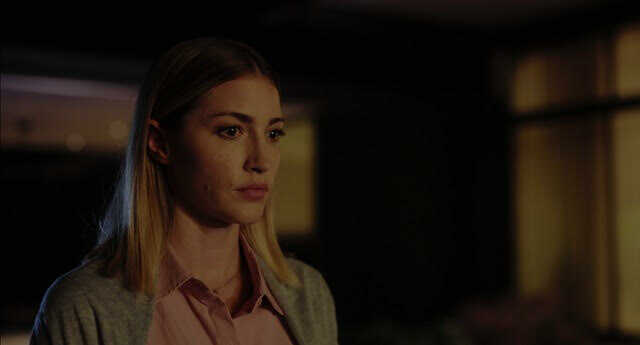
Cinemacy: Let’s get to know you more. Where are you originally from? Where did you grow up, and where do you currently reside?
Derek: I moved around quite a bit as a kid, from Orlando to DC to Columbus, Ohio but mostly I grew up in Cleveland, Ohio then went to high school in Houston, TX. My father was from Brooklyn so I spent a lot of my childhood going to New Jersey and NYC. My heart has always belonged in New York though I only lived in Brooklyn a year.
I live in Austin, TX now. I split time in LA because it’s one of those things you kind of have to do in the industry but Austin is home.
Cinemacy: What have been your most formative moments in filmmaking to date? Proudest?
Derek: My day job is that I’m an assistant director so I’ve been pretty lucky to work with a lot of really talented filmmakers and learn from them. One of the jobs that I was an AD on where I got to learn was Alita: Battle Angel. It was incredible to watch the filming processes of something with so many VFX shots.
As for my own work, When Unfettered, has been something both formative and proudest of. We shot with lots of kids and animals in parks and downtown so just accomplishing that is crazy in itself, much less during the summer of 2021 while the pandemic was still going on. It was also the first time I really had to trust other people as far as VFX or a composer after the shoot. Generally, I would just film things that I was capable of doing myself or have a song in my head that I knew we could license. I can’t do VFX myself so there was this unease about making things like that.
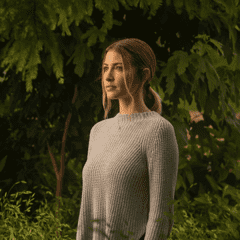
C: Who are your filmmaking heroes and dream collaborators? Do you have any next projects or ideas in the early stages that you’re excited about?
Derek: So many heroes, Akira Kurosawa, Fellini, Scorsese, John Huston.
I really, really want to work with Robert De Niro. He was probably the most profound influence on my seeing how powerful film can be when I saw Awakenings around 12. He’s been my favorite ever since then.
C: What have you learned about working in indie filmmaking that more aspiring filmmakers would benefit from knowing?
Derek: Just make stuff and try your best not to be discouraged. Make mistakes. Be bold.
I wish more established filmmakers were honest with aspiring artists about the reality of this industry and the film festival circuit. It really is rigged against you. It’s a circle and it’s designed to mostly keep you out. Some of these big festivals will never say it aloud but they may be taking two films a year that are from blind submissions. The agencies, studios, established filmmakers independent producers, etc. are all vying for the slots and there really just isn’t a large place for many unknowns at those festivals. Then you have festival distribution companies, aggregators, reps, and so many people who already have a foot in these circles.
So if you submit to those few dozen fests and you’re turned down, keep moving forward. Try the regional festivals. There are so many great festivals that are looking for less connected new voices.
C: What messages and themes are important to you that you wish to explore in your future work?
Derek: I adore anything that’s going to have any kind of poignancy. I’ve always wanted to make things that allow people to feel something and in general, what I write, tends to be something sociological. I’m fascinated with our relationships as humans amongst each other.
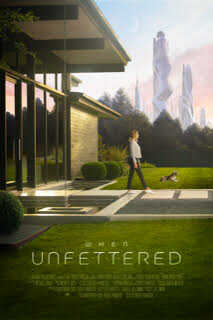
'Kim's Video': A Cinematic Adventure About a Beloved Video Store
The new documentary Kim's Video may start as an archival film about a once beloved, shuttered video store. However, we end with a sprawling cinematic adventure of mystery and intrigue that follows one cinephile's search to find a collection of over 55,000 rare videos previously thought to be lost to time. His stranger-than-fiction investigative quest spans multiple continents and even involves the mafia. Ultimately, this delightful documentary highlights the importance of cinema and the power of preservation that will captivate cinephiles and audiences everywhere.
In the 1980s, Kim's Video was the ultimate physical media mecca for movie nerds (directors David Wain and Alex Ross Perry popped up to praise its importance to their careers). Located in New York's Lower East Side, "Kim's" (as its devoted members called it) "had everything." Rare auteurist cinema, experimental short films, and international arthouse, these copies were a treasure trove for faithful film fans. However, most of this archive's legality was questionable, as they were mostly bootlegged versions (famously, Jean-Luc Godard sent the store a cease and desist letter). This was thanks to one man, the store's owner: devoted cinephile Yongman Kim, who once had seven video stores with over 55,000 films circulating between them.
However, with the inevitable turn to streaming, physical media and video rental stores–including Kim's–would end up going out of business. This devastated its patrons (like the Coen Brothers, who allegedly had racked up $600 in late fees). This would also spur one cinephile into taking action: David Redmon, the co-director of Kim's Video and the film's narrator and main character. This documentary begins like most others: troves of old VHS footage mixed with new modern-day footage and interviews. He even interviews Yongman Kim himself to share stories about his former store. But when David learns from a former employee what happened to the entirety of the hollowed collection in one of the interviews, he undertakes a continents-spanning search fit for any conspiratorial movie.
https://www.youtube.com/watch?v=RLbTNL2eKIY&ab_channel=DrafthouseFilms
Of all the options Kim received for where to donate his collection upon the store's closing, he chose the offer from the small town of Salemi, Sicily, which promised to digitize everything and play them at a tourist destination, celebrating Kim's massive collection and contribution to cinema preservation. However, years later, nothing materialized, and no one reached out. Arming himself with just his camera (and the spirits of cinephile gods like Jim Jarmusch and David Lynch on his shoulders), David travels to Sicily and begins asking for "Kim's." Meeting mostly non-English speakers, David ends up befriending everyone from locals, to tourism center employees, authorities, the chief of police, and even the mayor. Some of his dead ends ultimately expose people's ties to the mafia. But David locates the collection and channels the movies he was raised on, designing a plan to save the archive.
Co-directed by David Redmon and Ashley Sabin, Kim's Video is a thrilling documentary that I was excited to watch as it continued to go places I didn't expect it to. The archival footage mixes wonderfully with lo-fi music (by Matthew Dougherty and Enrico Tilotta) as its soundtrack. What starts as a seemingly innocuous topic becomes a portal into a whole new world that reminded me of the curious investigative journalism of How To With John Wilson (both for how David narrates and shoots the film in the first person view).
As David goes further down the rabbit hole of potential corruption and intrigue, he constantly returns to calling on his film god angels, reflecting on directors' movies and quotes, which invoke their spiritual selves into the story and his mission. "It's not where you take things from, it's where you take them to," says Jean-Luc Godard. Released by Drafthouse Films (who, spoiler alert, play a part in saving the day), Kim's Video highlights the undeniable reality that physical media can be lost to time if we don't actively preserve it. It's a movie worth telling, seeing, and saving.
'Kim's Video' opens in select theaters on April 5 before expanding on April 12.
Apollo Bakopoulos Dances Through Life With Self-Acceptance
There is so much beauty in the world and within ourselves. And yet, sadly, many people aren't able to, or don't choose to, see that. After struggling to accept himself, dancer, artist, and filmmaker Apollo Bakopoulos bravely overcame crippling feelings around self-shame to begin living a life of self-love, which he then poured into his new film, Aligned (which tells the story of a closeted dancer who struggles to accept his sexuality). The film is a touching gift that audiences will delight in watching.
Read More: 'Aligned' Review: A Gorgeous Meditation on Self-Acceptance
In our exclusive, wide-ranging, and incredibly thoughtful interview, writer and director Apollo Bakopoulos talks about conceiving the story of Aligned from a very personal place, how he uses dance to promote vulnerability and self-acceptance, and his dream of "wanting to hold a safe space for empowerment, deep exploration of identity, sexuality, self-love, and acceptance, particularly with LGBTQ youth."
Cinemacy: Apollo, your new film Aligned depicts the story of a closeted dancer–who struggles to accept his sexuality–beautifully. When did you first conceive of the story? What feelings did you want the film to convey?
Apollo: The genesis of Aligned came at a point in my life when I had a personal and profound experience that opened my eyes to deep truths about myself. I noticed that to feel comfortable and love myself, I was relying on external validation and approval. I mistakenly believed that I lacked something, and I maintained self-judgments around that belief and hesitated to be vulnerable enough to explore the delusion that blocked my happiness. It was a profound realization that was life-changing. This awareness led me to consider the conditions of self-love and acceptance and eventually drove me to write a script about these concepts in a way that would feel relatable.
I embarked on a journey to discover who I would be if my fear of rejection hadn't run my life. Who would I be if I didn’t rely on someone else’s love and approval of me? Who would I be if I followed my heart and lived from my dream? I wanted the audience to experience the sensation of self-acceptance through the character’s dancing, especially how beautiful and natural it can feel to see two men dancing. I wanted these scenes to be playful and innocent and to create a story about intimacy and connection–or the lack thereof–between two people.
How can two people have an emotional bond and be in a partnership that embraces the authentic soul beyond sexual involvement? This question led me to a deeper investigation of the unfolding connection and love between two men, and how the harmony and conflict in this relational unfurling is mirrored in the choreographic gesture of their dance together. I wanted the men to explore and create a new experience around intimacy through dance that came from a place of innocence and playfulness instead of solely sexual gratification, external validation, and the need for approval.
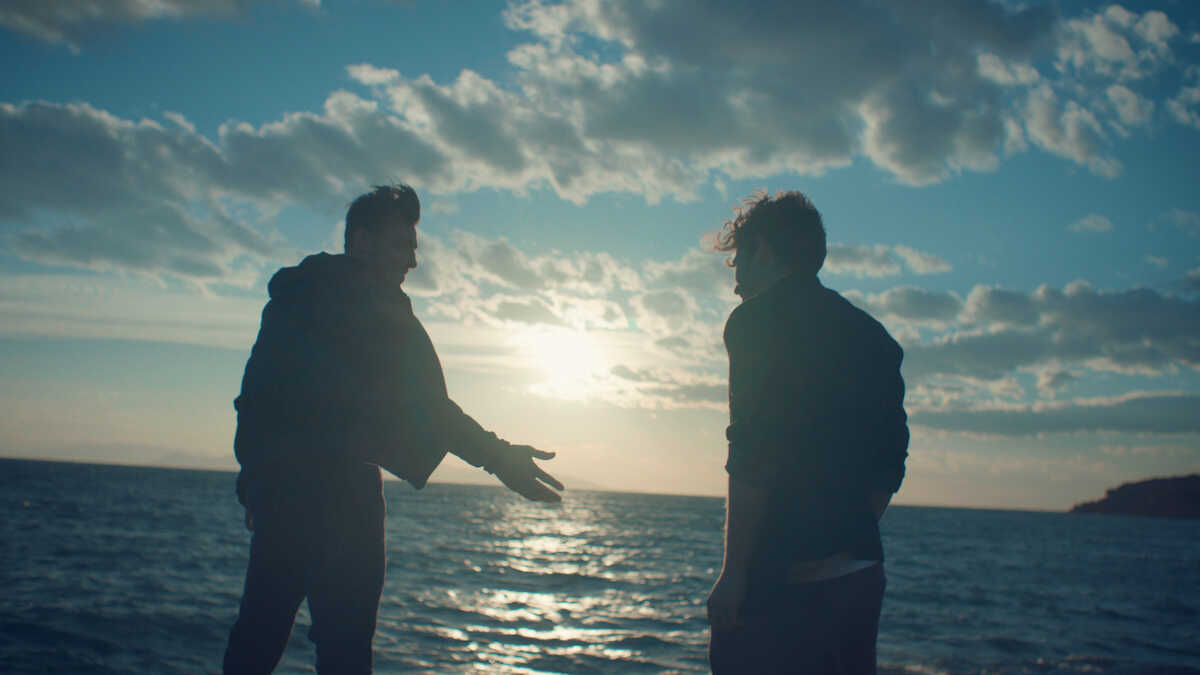
C: The camera moves gracefully, gliding around people performing ballet-like dance sequences. What did you want to communicate in those moments, and did you have any inspirations behind that?
Apollo: I've practiced dancing all my years living in New York to better connect with myself. It’s been a path towards self-love and, particularly, love of my body, embracing and loving all aspects of it; including any perceived imperfections. Dance has helped me express emotions and get mentally unstuck when I'm too much in my head. It gets the energy moving again. It's an intimate moment of physical release I can have with myself. Also, dancing has helped me be more vulnerable. We say so much through dance that cannot be expressed in words. Dance helped me be more of who I am and has made me a better person by practicing the principles it embodies, such as joy, discipline, and freedom, whether I am in the act of dancing or not.
There is performance dancing, which is the practice of dance as an art. But there is also the art of living, which is the dance of life. Can I do both? Also, dance allows me to connect in a non-sexual way to others and to overcome any internalized cultural shame around dancing intimately with other men. The call for me was to overcome those limitations and create a film that inspires others to experience true intimacy, grace, and freedom and to express their love authentically in a natural way. When I felt the call, I watched a video shot at a dance retreat in Costa Rica depicting an intimate, male pas de deux. It was one of the most beautiful things I had ever seen, and I related to the viewing in a kind of joyful neutrality. It just felt right to me. It was this experience that made me ask myself: “Why haven't I seen more of these healthy examples of male intimacy expressed in the media or real life?”
I still don't see men dancing together publicly, except in specific locations for that purpose. I would love to see more inclusiveness instead of the current sequestration. Seeing that intimate Costa Rican dance video inspired me to create a narrative where male dancers would play the primary roles. The feelings that arise in these characters during the film connect them with the audience and allow people to relate to their situation. This situation demands self-acceptance and ultimately the capacity to see the value of being in a society that celebrates inclusivity.
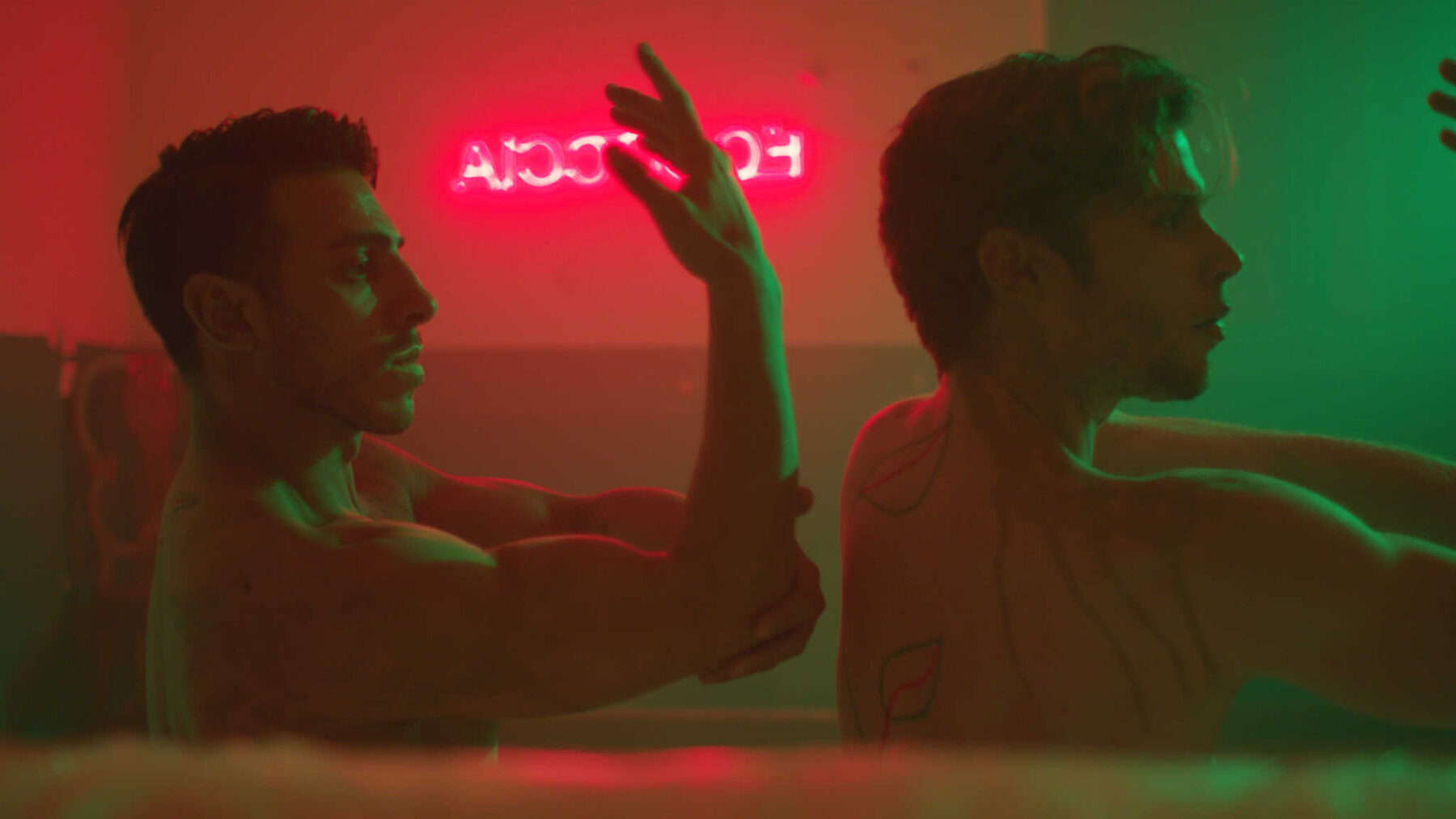
C: The themes you put forward in the film are so profound, exploring guilt and shame over a secret sexual orientation, as well as self-rejection and feeling unworthy of love. How personal were these ideas to you, and what do you feel having completed the movie?
Apollo: The story morphed quite a bit over the last three years. The themes of rejection, self-discovery, and self-love in the characters' journey parallel my journey during this time. I, too, have struggled with stories of never being good enough or feeling unlovable. I believe the core, existential issues presented in the film are universal. I worried I would be rejected if the world knew how broken I felt inside. I feared that no one would ever love me for myself if they could see who I am, so I have hidden parts of myself. I also experienced shame around my sexuality as a gay man who came out.
For many, there is deep-seated trauma associated with coming out, not only to the world but also to oneself. Many people encounter challenges in establishing authentic connections with themselves and cultivating sustainable, meaningful relationships. We live in a society that has taken many years to progress to our current position. Often, societies’ core beliefs–structured by society and passed down through families–have excluded same-sex love and marriage. An examination of these morays reveals how shame leads to feelings of separation and inhibits intimacy due to the fear of rejection.
By removing these elements, we can find real intimacy and self-love, and foster community, closeness, and beautiful relationships. Confronting my fears has been essential for an experience of authenticity. As I adopted certain practices and mindsets, as the characters do in the film, I experienced internal healing and stepped away from living in fear, shame, and low self-esteem and towards living in grace and faith.
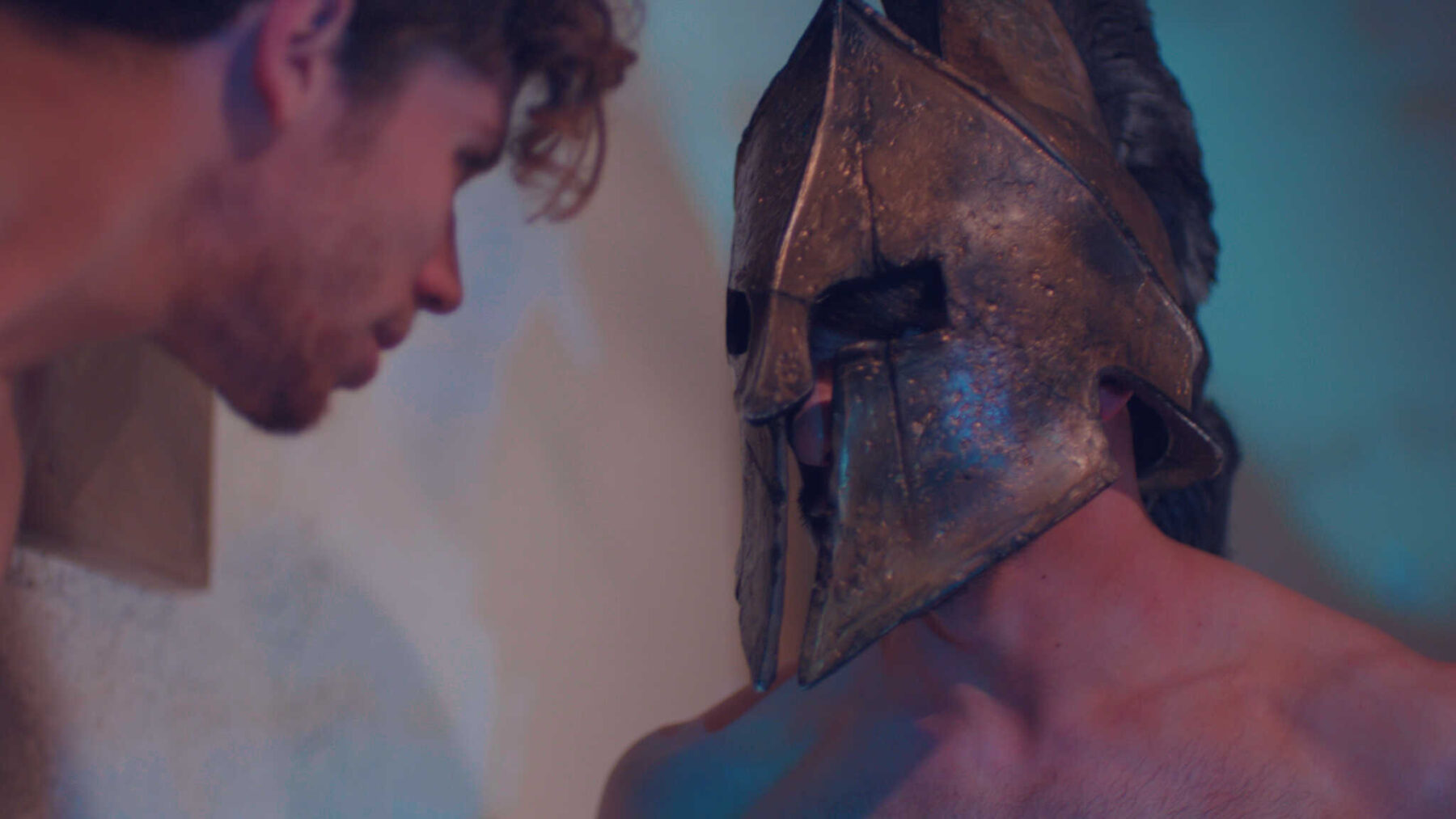
C: Can you talk about the pre-production process? After writing the film, what steps did you take until you were ready to shoot?
Apollo: The initial stages of writing and moving into production progressed swiftly. I completed the Greek portion of the script within two months, and within another two months, we were already in production in Greece. It took about four months to commence shooting. This involved bringing together the right individuals, engaging in meaningful conversations, and clarifying the vision.
Additionally, it encompassed casting, scouting locations, and all the necessary preparations for production. However, the most crucial aspect was preparing mentally and spiritually to manage everything effectively. Our inner work constitutes 80% of the process, while the remaining 20% involves taking action.
https://vimeo.com/906511515
C: What challenges did you face making the film? What were your favorite moments while making the film, and editing?
Apollo: The biggest challenge for me was, and still is managing my expectations. Staying engaged in the process and committing to my personal growth, evolving into the person I knew I needed to be, required trust in the possibility of embracing a new version of myself. Maintaining motivation throughout this journey was crucial to completing the task. The primary challenge was staying focused on the context and cultivating an inner experience that aligned with the project's context because I couldn't transmit something I didn't have.
C: Another thing I love about the film is how you list productive self-help steps that can help people stay aligned, such as expressing gratitude and keeping a journal. Do you have any routines that you use?
Apollo: I believe that we are shaped by what we practice and focus on and that we can discipline our minds and thoughts to handle our circumstances more effectively. I value and commit to daily practices such as meditation, writing (gratitude journaling), maintaining a positive mindset, and being part of something bigger than myself.
I also practice breathwork, yoga, dance, and any experiences that help me connect with myself and the divine—a divinity that I often find in my communion with nature. Meditating in nature is my favorite practice. Most importantly, I often check in with my heart, asking the kinds of questions I need to listen to so I lead myself toward peace and fulfillment.
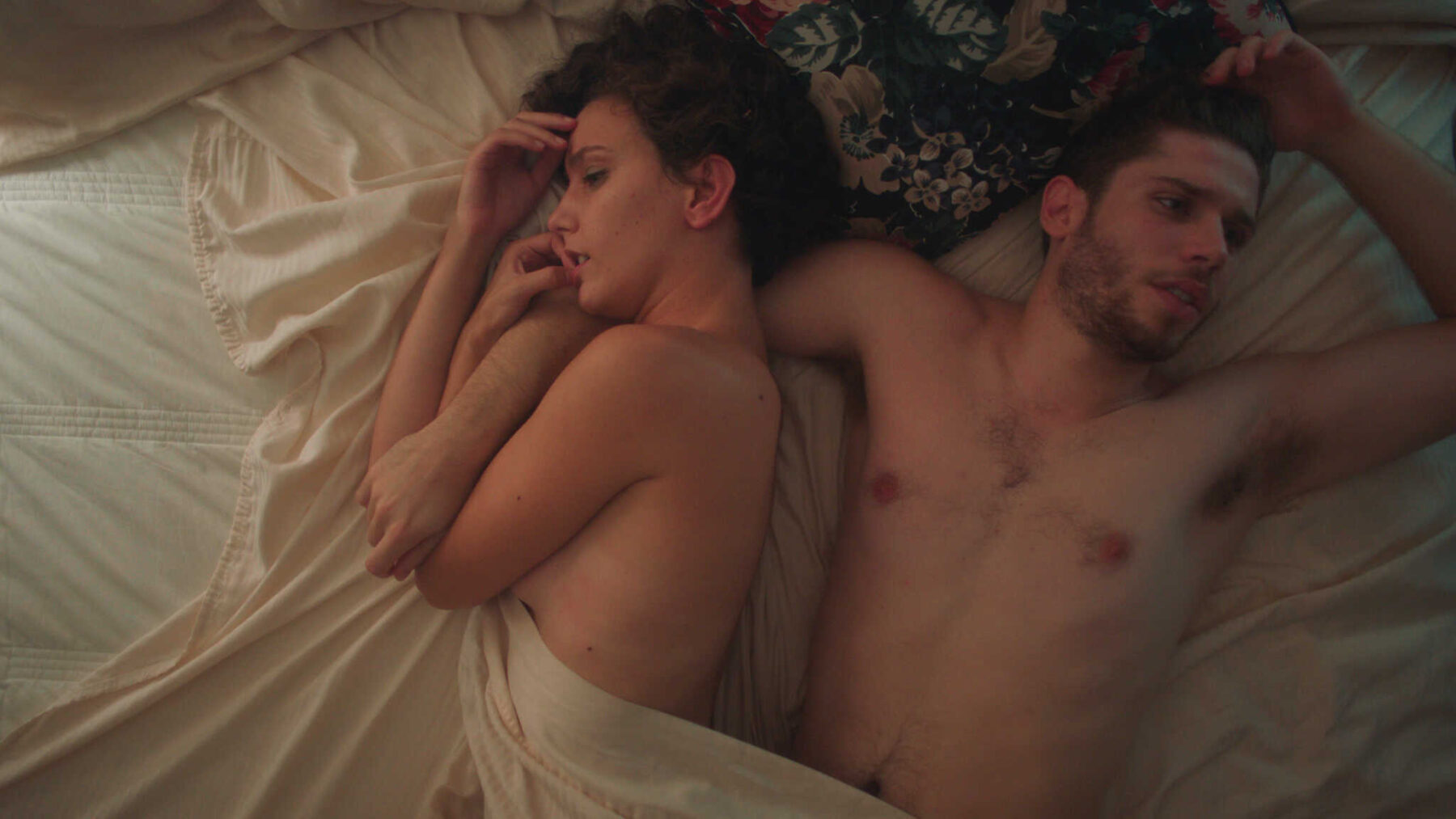
C: What do you hope the film achieves?
Apollo: To create a sense of self-compassion within the audience and inspire individuals to break free from the cycle of self-judgment. To coax the question: “Can I accept myself fully in this moment?” Even when change is inevitable, “can I accept myself as I undergo the process of change”? Learning to love and accept the self in this moment allows for the expression of life’s immediacy and vitality.
The audience should expect some of their values to be challenged as they embark on a journey in Hellas and New York, and I hope that they will fall in love with both places. Perhaps they will question themselves and ask what self-love may mean to them, or consider what they want out of life. To find their bliss, what are they willing to let go of? Additionally, the film aims to inspire the younger generation to consider an example of healthy sexuality, since this sort of representation sometimes seems to be lacking in the popular media.
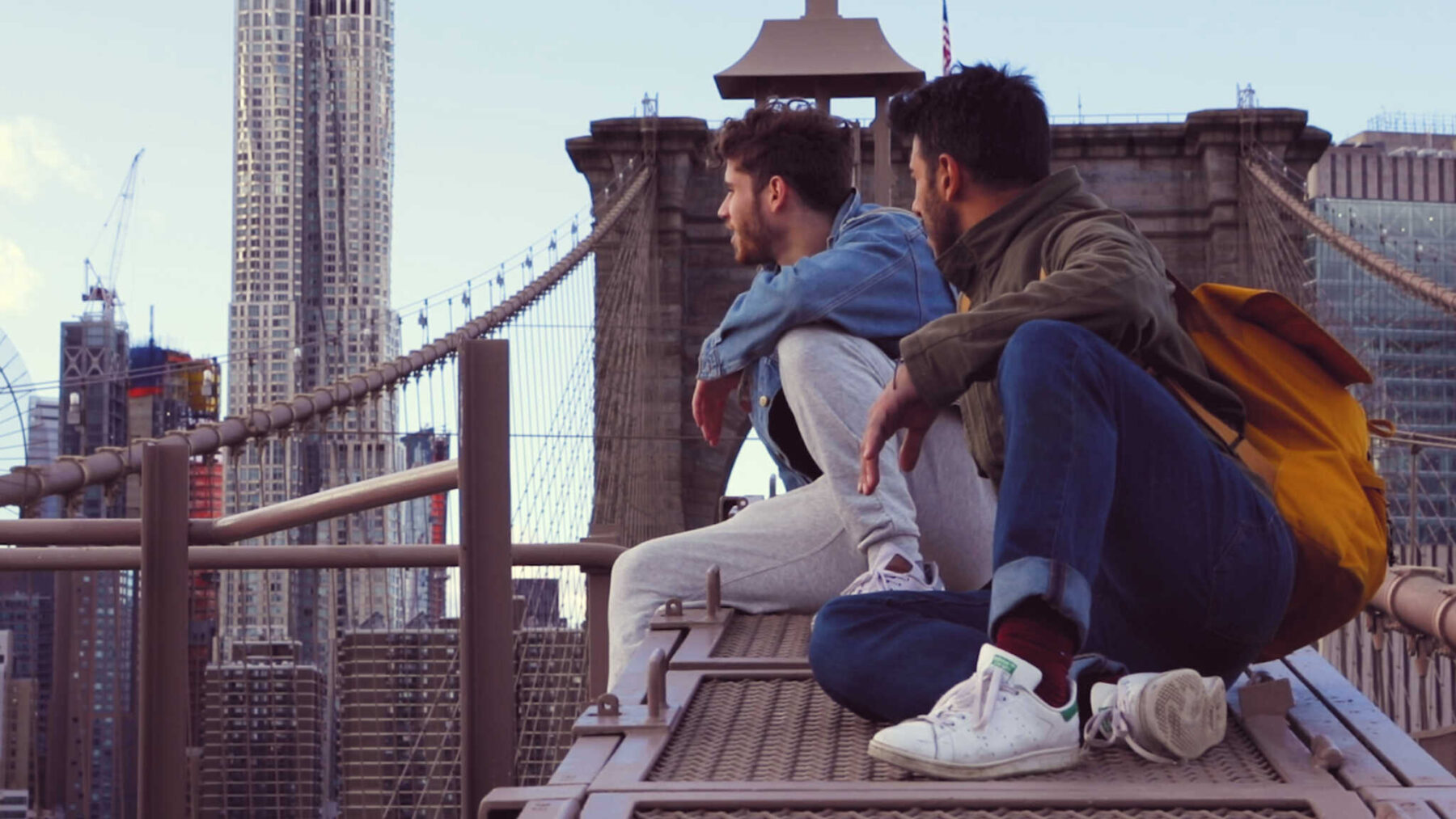
C: Apollo Bakopoulos, where were you born, where did you grow up, and where do you currently reside?
Apollo: I was born and raised in Hellas, Greece. I grew up there until I embarked on a journey at 20 years old. Since then, I've lived outside Greece, mostly in international areas.
Initially, I spent some time in Paris as a student and later in London, where I began my career in the industry's early years. Eventually, I settled in New York, where I have lived for the last 14 years. New York is my home, although much of the editing was completed in Hawaii.
C: How did you get your start in filmmaking?
Apollo: I started with photography, taking pictures as a child, and then began documenting and making videos at home when we got our first camera. I never thought I wanted to be a filmmaker, but I knew I wanted to be a photographer.
A dear friend of mine who works in production had a conversation with me then, suggesting that I start filmmaking school instead of just pursuing photography. She encouraged me to do that, and I did. Since then, I fell in love with it. Filmmaking has become my life's path.
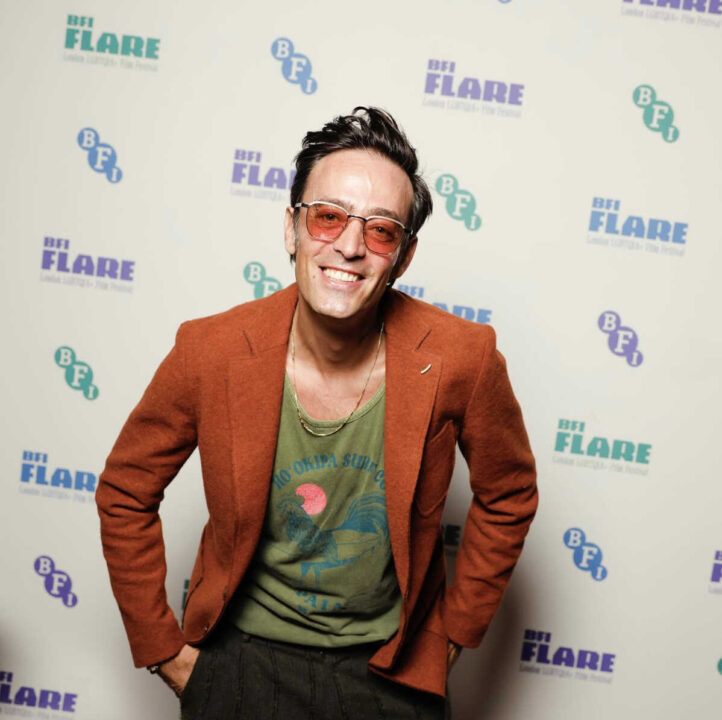
C: What have you learned about working in indie film, and what did you wish you knew before you began?
Apollo: When I am grounded and connected I am in tune with my intuition and guidance of my higher self. I find by maintaining my practices and living a life of service, I can move through fear and into trust. I also learned that every experience has a lesson, therefore, I can be grateful for the wisdom. It might have been nice to know everything before I started but then I wouldn't have had my journey.
C: Who are your filmmaking heroes and dream collaborators? Next projects?
Apollo: I love Stanley Kubrick and David Lynch. I would also love to collaborate with people who are passionate about taking their work to the next level by empowering people and creating more LGBTQ context.
C: What messages and themes are important to you that you wish to explore in your future work?
Apollo: Holding a safe space for empowerment, deep exploration of identity, sexuality, self-love, and acceptance, particularly with LGBTQ youth. I want to normalize diversity and provide positive role models that foster a healthy self-image and encourage authentic expression.
For more on Apollo Bakopoulos and 'Aligned,' head to https://alignedmovie.com/.
Erik Osterholm Reflects On The Bones of Our Mortality
Filmmaker Erik Osterholm has quite an impressive resume. A multi-Emmy award-winning executive producer and director, he's worked on such award-winning unscripted series as CNN's Anthony Bourdain: Parts Unknown and HBO's VICE, which took him to all seven continents and some of the world's most remote corners. However, the most incredible journey he takes, captured in a new short documentary that he co-directed, might just be his most unbelievable yet.
Related: 'My Dead Dad': Honoring a Loved One with a Unique Sendoff
In the new short documentary My Dead Dad, a young woman brings the exhumed skeleton of her recently deceased father on a road trip, to honor his final request. Co-directed by Osterholm and Abby Ellis, the film is mind-blowing, and moving to watch. A jaw-dropping adventure that must be seen to be believed, the film is as much a meditation on mortality as it is a celebration of life. In our exclusive interview, Erik talks about getting involved with the project, the first time he saw the skeleton, and how the film shaped his thoughts on life.
Cinemacy: My Dead Dad is a short documentary (25 minutes) that follows a young woman honoring the final request of her recently deceased father: to bring his exhumed skeleton on one last road trip across the country, to eventually be put on permanent display in his former high school. Forgive me, but can you please confirm once more for the record: that this is all real??
Erik: Haha, yes, it is. No one can be totally sure of Christopher Gray’s original intentions (nor were instructions left for his family), but this was his request and one his daughter committed to uphold.
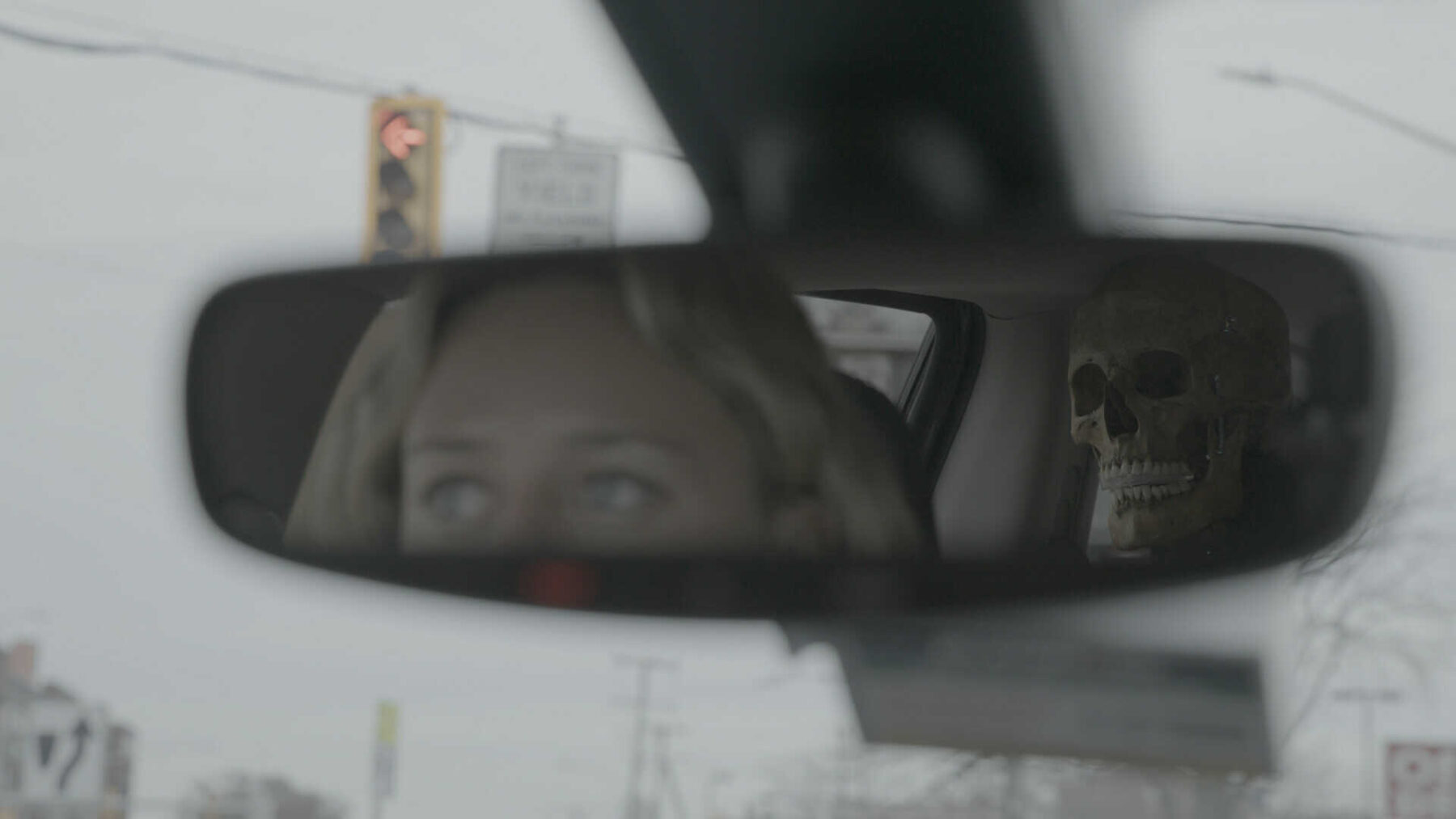
C: I have never seen anything like this story before. It’s all quite jaw-droppingly shocking! What was your reaction when you first learned of this story?
Erik: The story is fantastic, and I immediately wanted to know more. I loved that it was a journey. And that a family was trying to fulfill an (avant-garde) dying wish.
C: You are listed as one of the film's co-directors, alongside Abby Ellis. How did you meet and what was your creative starting point together?
Erik: We met working together on a VICE documentary series for HBO, and we stayed in touch over the years after both going our separate ways from that show. But I originally connected with Olivia (Christopher Gray's daughter and the film's subject) and her story. I knew I wanted to work alongside a talented director/editor who knew how to craft a story and structure, and immediately thought of Abby. I was delighted when she responded as positively to the story as I had, and we rolled up our sleeves and dove in.
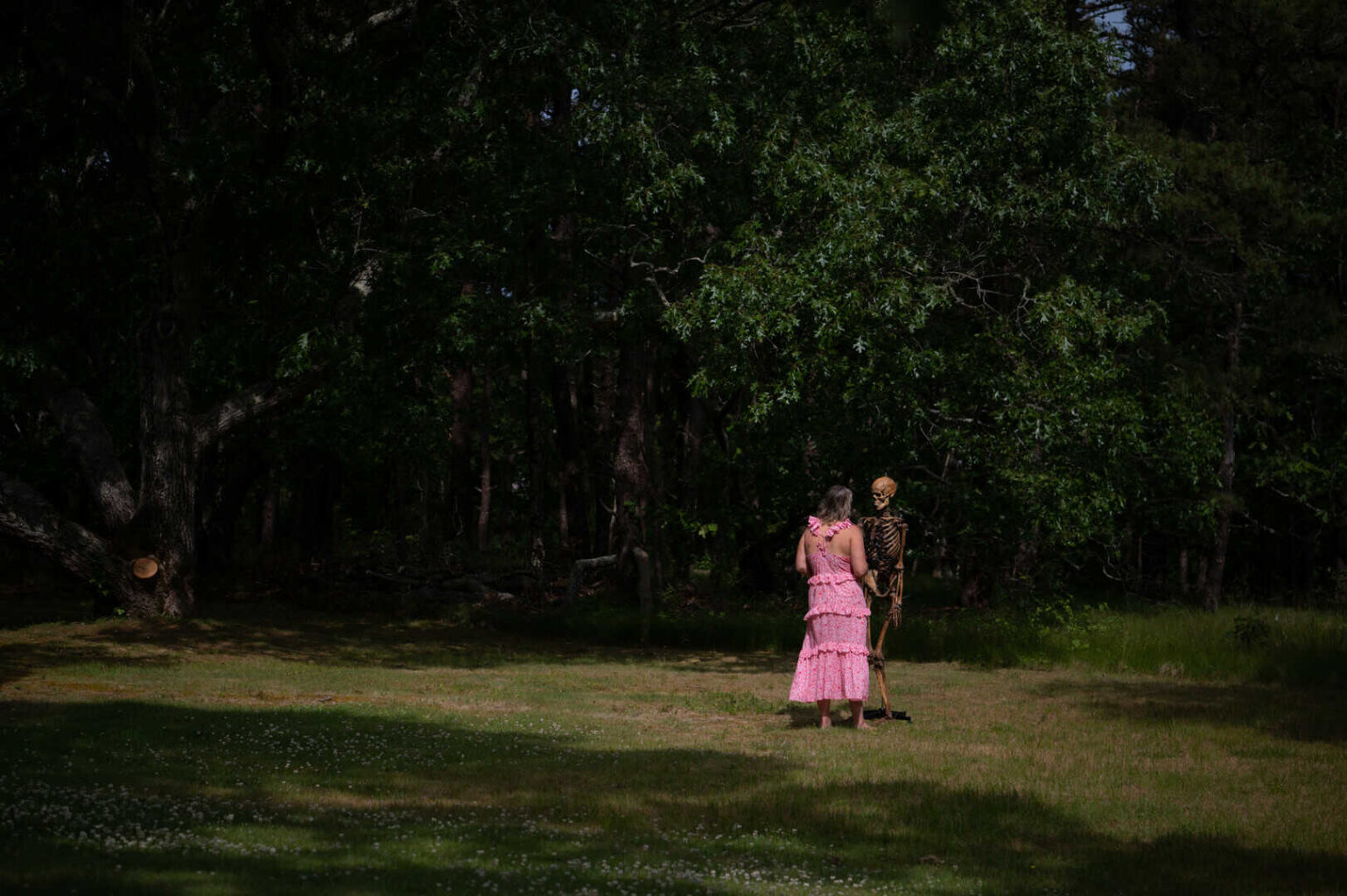
C: Do you remember seeing Christopher Gray's skeleton in person for the first time? What was it like shooting the scene where the forensic scientist brings it into the room for his daughter Olivia to see for the first time?
Erik: Yes, I remember seeing the skeleton for the first time when we went to film with Dr. Hunt. This was before Olivia had seen it as he was still working on rearticulating Mr. Gray’s skeleton. It was shocking… there is a subtle but tangible feeling that this is real; it's not a fake plastic skeleton, but this is real bone, and this was inside a real human being.
The build-up to Olivia's first seeing her father’s skeleton was palpable. She was awash with emotions ahead of it but as you see in the film, she quickly moves from astonishment to recognizing her father.
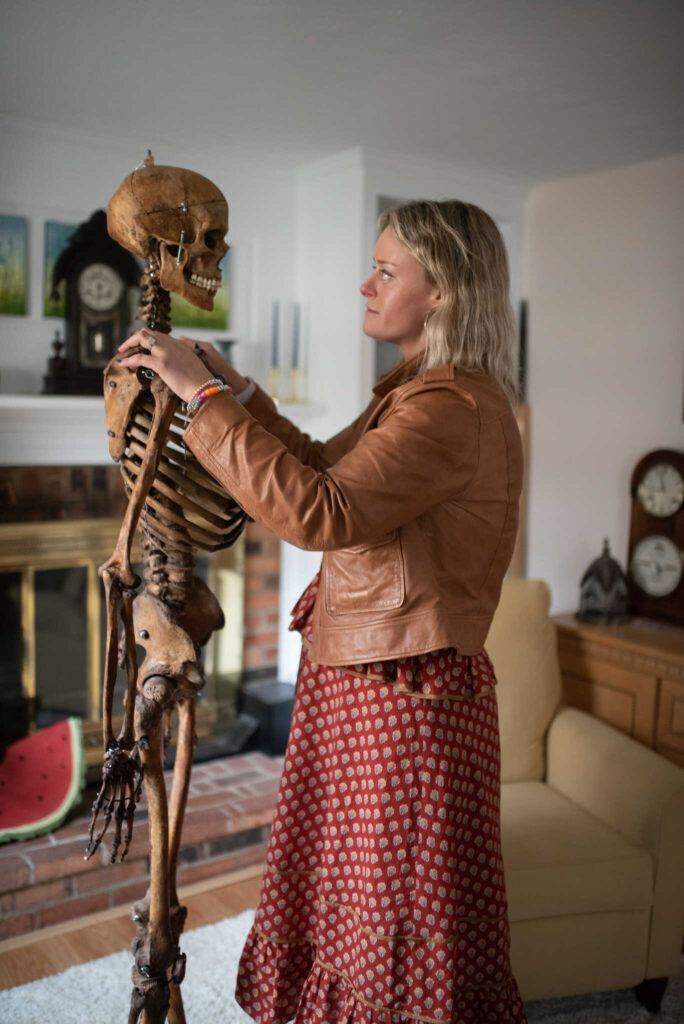
C: We eventually learn about the man himself, Christopher Gray, an architectural historian who covered the Streetscapes section for the New York Times while alive. What lessons do you feel the film communicates about appreciating the history of something from a time that’s passed?
Erik: No one knows Christopher Gray’s original motivations, but it's hard not to make the parallels between the skeletal structure of a building–which sees many lives and histories pass through it over the years–as well as the skeletal structure of a human, and the years, lives and histories that it similarly lives.
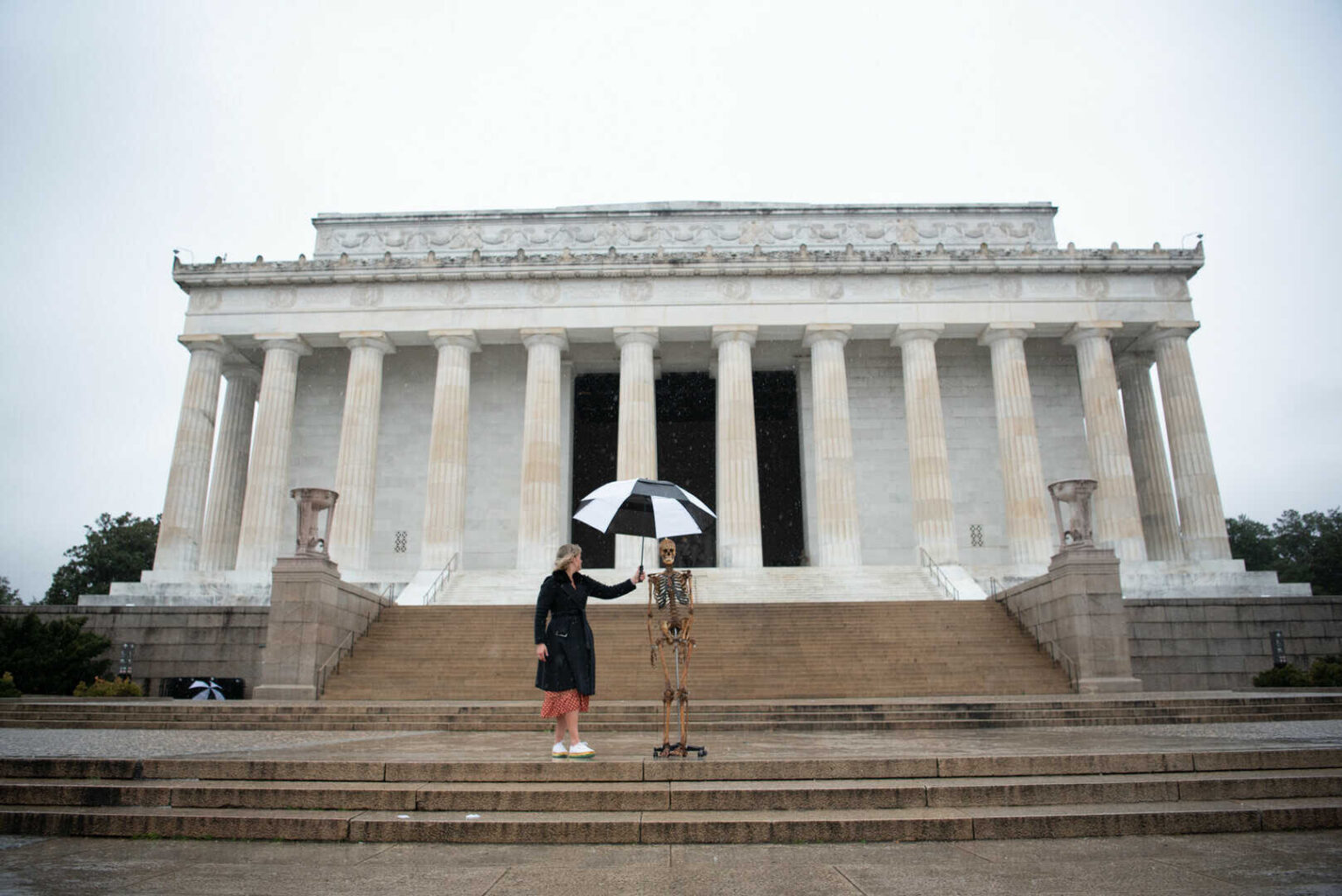
C: What challenges did you face while making the film?
Erik: Logistically, we were right there with Olivia and her family as they tried to sort out moving Mr. Gray’s skeleton. Needless to say, that proved to be, quite challenging.
And then you add the emotional aspect of this journey and story, and you have the makings of a great film. It requires a thoughtfulness that other projects sometimes don’t. But that is a good thing. It's what makes this project so special.
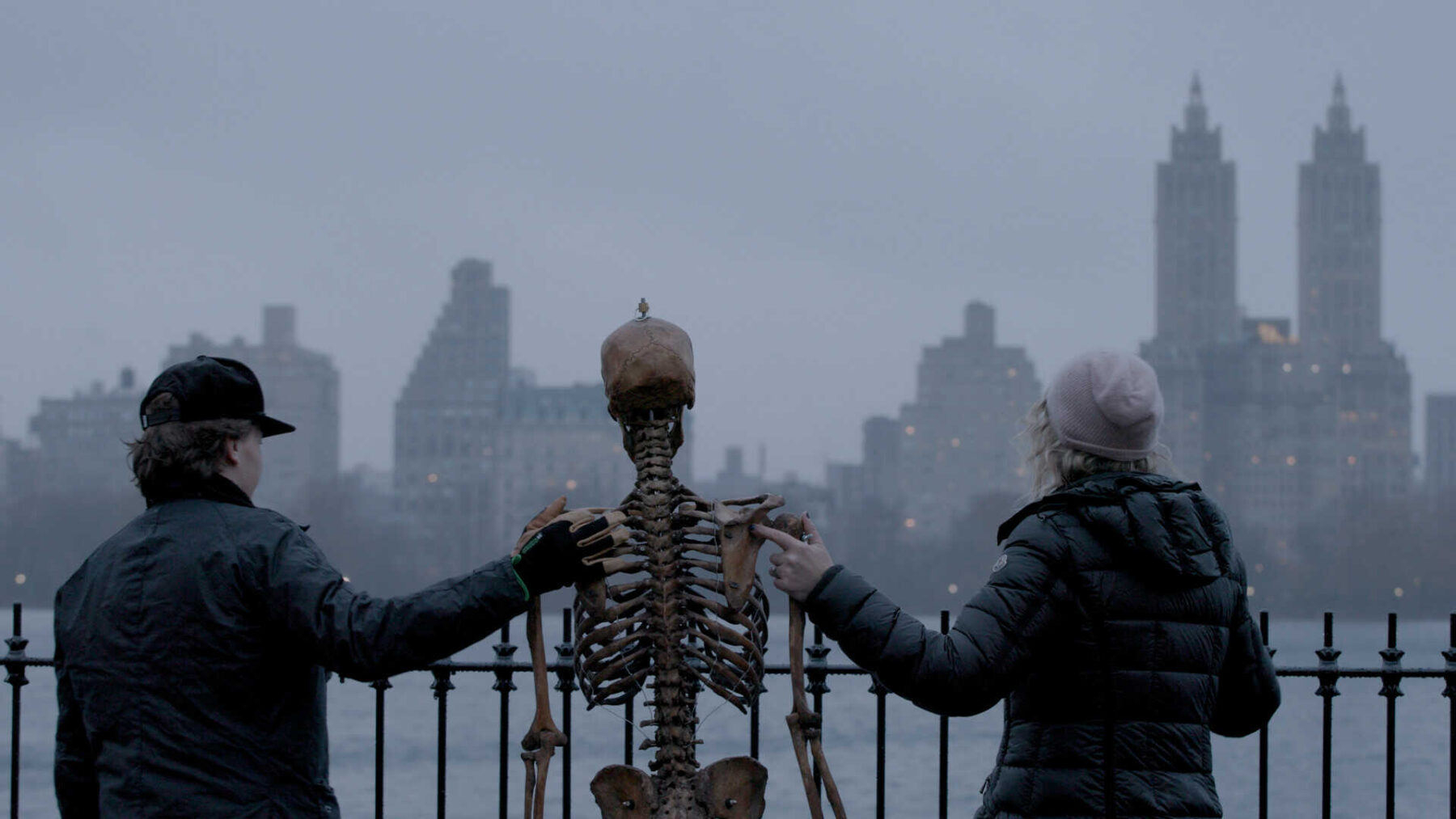
C: The film has such a cathartic, life-affirming tone, but also such a lightheartedly comic one. In particular, I'm thinking of the scene in which Olivia's young family members see Christopher's skeleton during the Christmas holiday together. Did you have an idea of what you wanted the film's overall tone to be beforehand? Did it change while shooting, or in post-production?
Erik: We always thought this should be lighthearted and warm because that was how both Christopher Gray and his family approached life.
With that said, the story itself is the meaning of the journey. Its commentary on life and death shows how we celebrate the ones we love after they pass. It's deep and serious and we never wanted the film to veer too wacky or comedic and lose that emotional weightiness.
C: One of the messages in the film is to “Let that freak flag fly, and be whoever you want to be.” Can you talk about what this message means to you, having now made this film?
Erik: Olivia shares that quote in the film, and it's something her Dad reminded her of often. Like any good journey, it's not the destination that is the point, but how the trip changes you that matters. In this way, I think Olivia reflected on how much her Dad told her to follow her path and ignore any idea that said what she did, liked, or desired could be considered weird or strange, and to just be yourself.
Sometimes the wisdom and messages we receive in life don't land immediately, but take years to sink in. I think being on this posthumous journey with her father reminded her of one of the core messages he kept reminding her to hold.
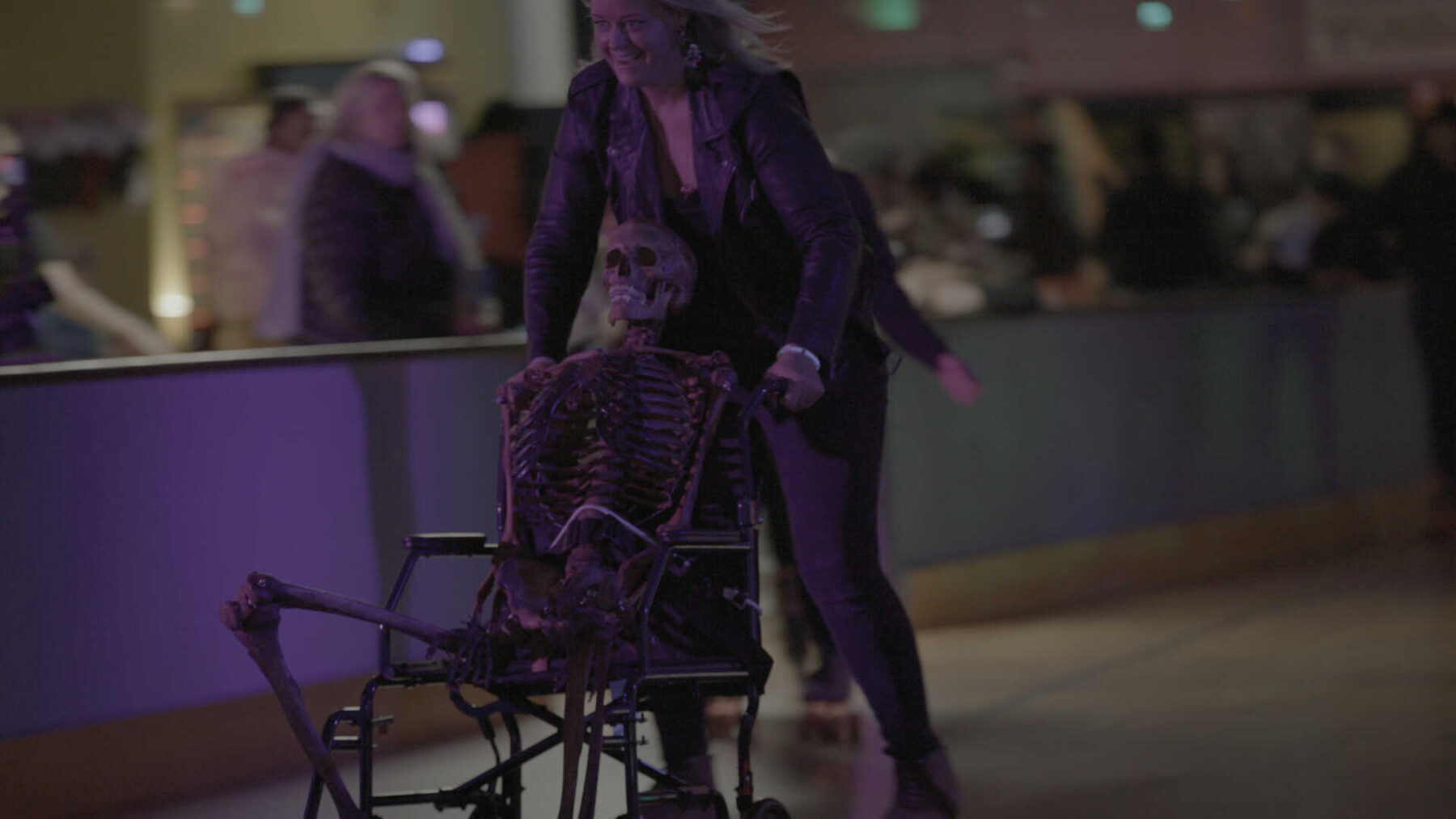
What has the reaction to the film been like so far?
Erik: Very positive! This is a wacky, heartwarming, and beautiful story that we hoped would inspire questions about how we treat death and loss. And it appears to be landing.
C: I’m curious to hear your thoughts on mortality before making this film. What do you think happens when we die? Did that change after going through this experience?
Erik: I have produced several stories around the world including in conflict zones and the aftermath of disasters where mortality and the finite nature of life are very present. It makes you think about how much you need to cherish the time you have, and I think this film helps reinforce that.
As Olivia and her family try to fulfill their father's last wish, they also spend more time with him, doing the things he loved and always asked them to do with him.
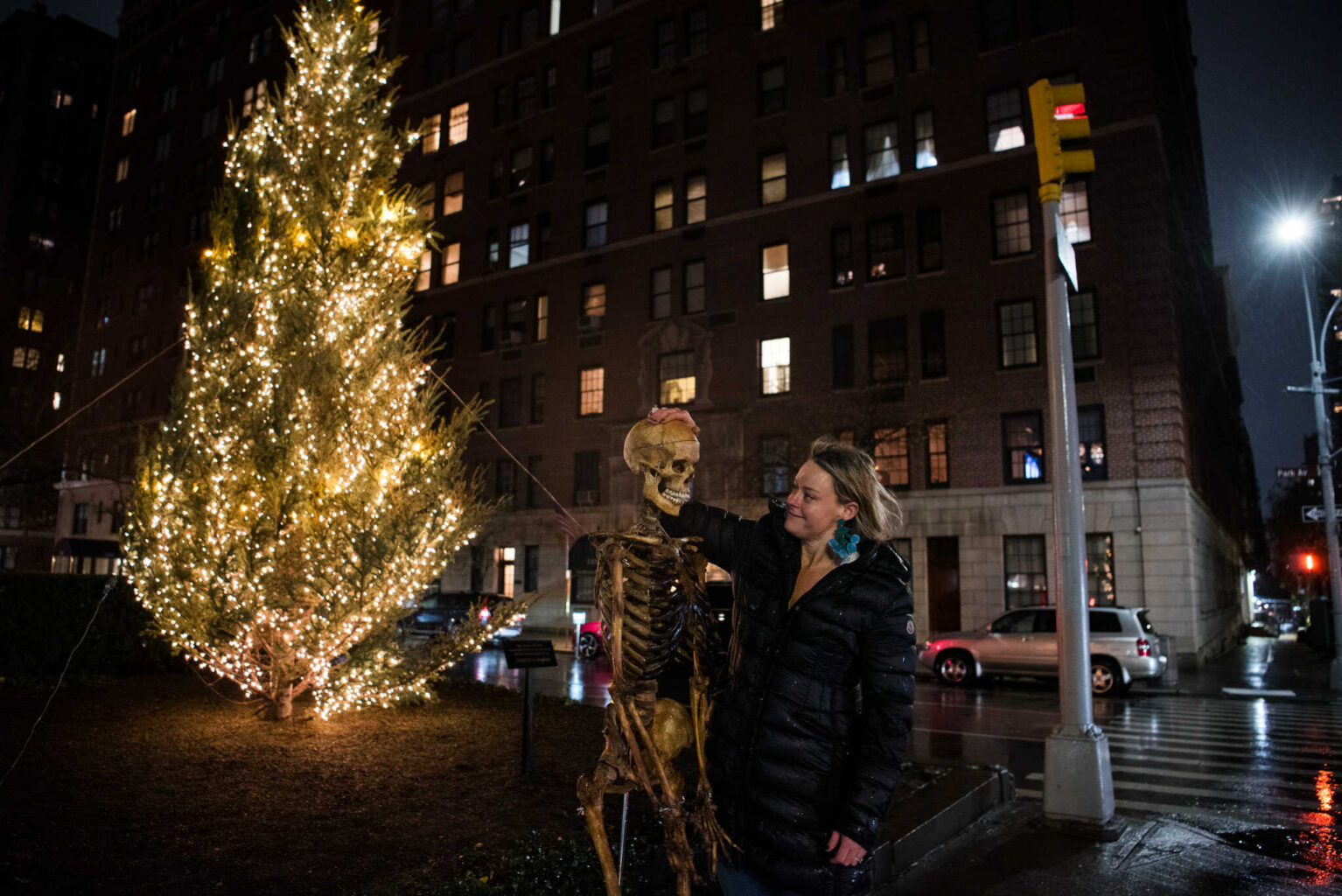
C: Do you have any newfound advice for people who lose a loved one?
Erik: Olivia would be best positioned to advise on the loss of a loved one, but I think what I have taken away from this is how important spending time with the ones we love is. And that when loss eventually comes, there is room to laugh, to cry, and most importantly, to celebrate the lives those people lived while mourning their absence.
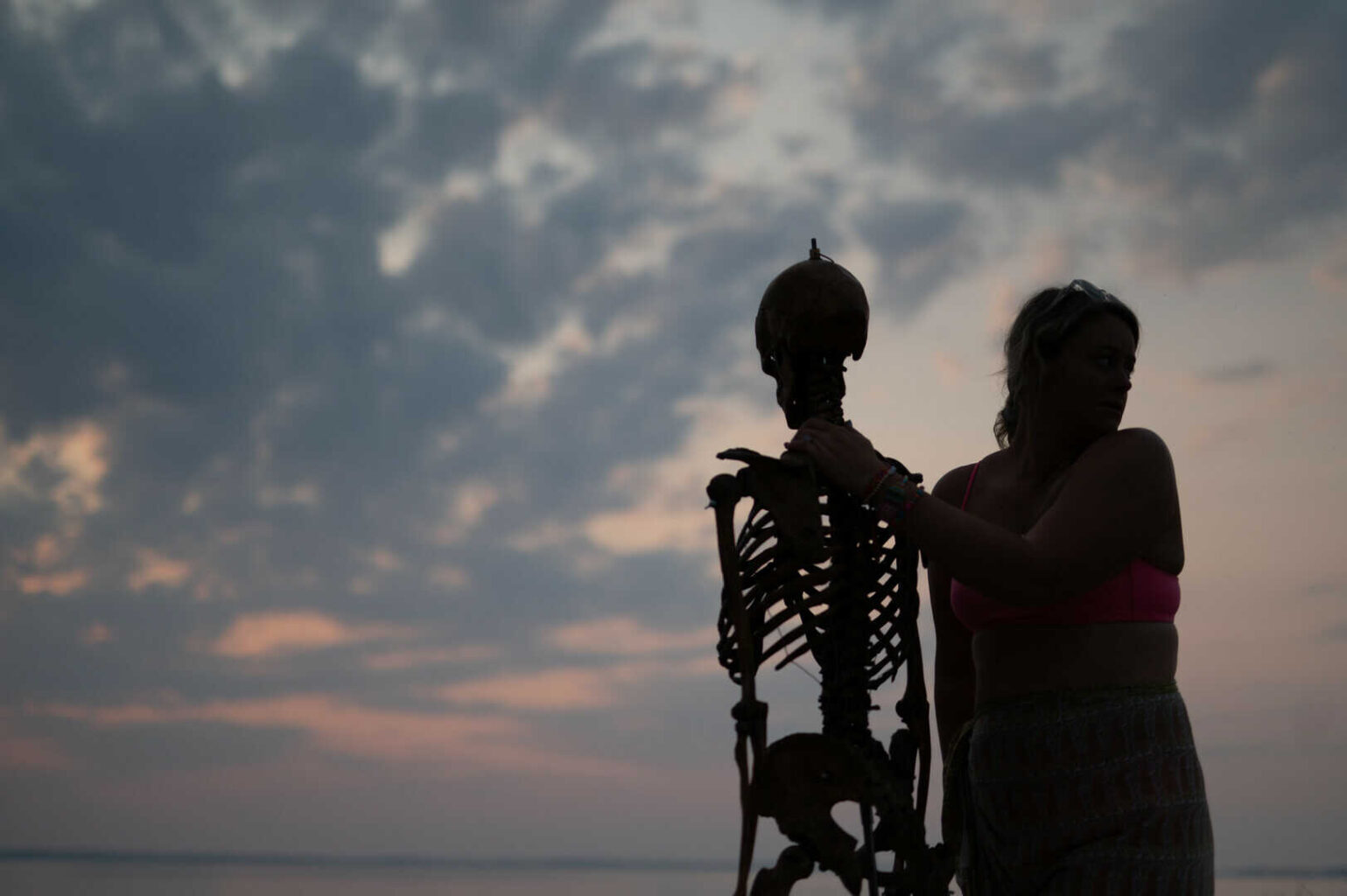
C: What is the future of this film, and do you have any future creative projects?
Erik: I have always imagined this story to have a second life as a scripted feature, which is a format that would allow you to dive into who Christopher Gray was as a New York Times writer, and build out the backgrounds of his family and characters and to lean even further into the questions of life, death and how to connect with the people we have lost. More updates on the scripted film adaptation, coming soon!
To follow Erik Osterholm, visit https://www.eosterholm.com/
'Trust' Shows a Fraught Family Fraying in 'Succession' Style
Take the cringe-inducing stress brought on by a family member's funeral from Shiva Baby and combine it with a Succession-style squabble for children's inheritance, and you'll have the new film Trust. Trust tells the story of a contentious family that struggles to stay together after a shocking twist in the matriarch's inheritance instructions that leaves a father and siblings' bond fractured. Heartfelt, humorous, and emotionally cathartic, Trust bravely reflects the messiness of real life and how we struggle to move ahead through overwhelming times.
With her blazer, blouse, and serious demeanor, youngest daughter Kate (Jennifer Levinson) practices a debate speech in a mirror, until she receives a phone call that levels her: "Kate, Mom's dead." Dazed, Kate returns home to reunite with Josh (Heston Horwin), her middle brother whom she's closest with. A data analyst with a level head, Josh keeps his emotions (and drinking) at bay, organizing the funeral with the rabbi (Adam El-Sharkawi) while Kate sneaks cigarettes and swigs of booze. Something beyond her mother's passing clearly unsettles her: could it be something to do with their absent father, who they've noticeably cut out of the funeral planning process?
In comforting (and comically portrayed) fashion, a flurry of family and friends from the Jewish community arrive with food and condolences. The funeral is a solemn affair, leading Kate to remark how their mother would roll over in her casket if she saw it, to which Josh informs her: "Kate, Mom was cremated." This classic lapse in family communication boils over when the eldest daughter Trini (Kate Spare) arrives, storming in with her shock of blonde hair, and immediately heads to the podium to express her heartbreak through cringeworthy, off-key singing.
As the family precedes to sit shiva (where cinematographer Sten Olson's impressively staged one-shot ties many people and backstories together), Trini, Kate, and Josh reconnect with their estranged father (Linden Ashby), whose arrival throws the night into further chaos. While he's obviously remorseful, Kate is left seething by her father's presence, revealing a grave betrayal he's made against them.
All of which leads to the reading of their late mother's trust. While the kids are ready to receive their share of the inheritance, they are met with the surprising news that their parents didn't finish signing those divorce papers years ago, leaving all of the assets to Dad, who's now choosing to withhold all of the money from them. Their financial security suspended and world upended, and the family fractures.
https://www.youtube.com/watch?v=UPy2EQACqWc
Beyond starring in the film, Jennifer Levinson's emotionally brave screenplay fearlessly tackles such topics as fraught family dynamics, infidelity, suicide, and substance abuse head-on. What's even more impressive is how Levinson writes a wide variety of well-developed characters with rich backstories we can sympathize with, who otherwise could have been one-dimensional stand-ins.
Much like families themselves, Trust offers a wide range of emotions. Director Almog Avidan Antonir balances cringe-inducing humor and highly dramatic moments, frontloading the film early on with quick-paced screwball antics when things are at their dizziest. Eventually, however, the pace slows and they are forced to sit with the uncomfortable drama they eventually find they cannot escape. As we sit through their growing discomfort, we understand that things can't be laughed off so easily and that pain needs to be accepted so one can move on.
Bringing the film to life are terrific and authentic performances. In the lead role of Kate, Jennifer Levinson brings a fresh realness and vulnerability that should put audiences on notice. As Josh, Heston Horwin is a true force, bringing a commanding presence and strength that gives way to the insecurities he later explores. As Trini, Kate Spare provides the right level of comic relief that also reveals a sympathetic and well-rounded character.
Trust is a rich drama and exploration into how messy family dynamics can be, and how we try to move on in the face of that reality. Exploring themes of grief and forgiveness makes for a real catharsis that will move audiences. Trust won both the Audience Award and the New Visions Award at the Cinequest Film Festival.
‘Orion and the Dark’: Family-Friendly Fun About Overcoming Fears
Have you ever been afraid of the dark? Or how about, anything at all? If so, then the new animated film Orion and the Dark is for you. Based on the book by Emma Yarlett, Orion and the Dark (now playing on Netflix) tells the story of a boy with an active imagination who faces his fears on an unforgettable journey through the night with his new friend: a giant, smiling creature named Dark.
The main character, Orion (Jacob Tremblay), is a smart, shy, fifth grader who's a typical kid with the exception that he is scared of absolutely everything: heights, bees, giving the wrong answer in class, losing a basketball game, and of course, the class bully, Richie Panichi (Jack Fisher), whose presence adds to the list of things that Orion worries could humiliate him at any turn.
Wildly imagining the worst possible outcomes in his head, Orion obsesses over what could go wrong by sketching these catastrophes in a notebook. One imminent looming fear is the upcoming class field trip to the planetarium – especially since his crush, Sally (Shino Nakamichi), tells him she's looking forward to sitting next to him on the bus.
Arriving home after another fear-filled day, Orion returns to the thing he's most afraid of: the dark. After his parents say goodnight, leaving his door slightly ajar...a little more...a liiittle more – perfect!), a towering shadow of a giant intrudes, by the name of Dark (Paul Walter Hauser). He has a towering, shadowy frame, but his wide eyes and huge smile don't scare him. And this is exactly the reason Dark visits Orion. He knows that he is Orion's biggest fear, and wants to fix that. Dark offers to bring Orion along with him on his nightly journey to make people fall asleep. Against his better judgment, Orion decides to join, and a fun-filled, supernatural adventure ensues.
https://www.youtube.com/watch?v=cScAQ2O26Y4
Orion and the Dark is a fun family film that offers laughs and life lessons. I enjoyed the animation, which reminded me of Pixar's Monster's Inc., in that it's also about secret worlds that make a huge impact on our daily lives, yet humans don't know they exist. The characters, such as Dark's friends, also reminded me of Inside Out, except instead of embodying emotions like "Happy" and "Sad," we have characters like "Light" and "Dark."
After joining Dark on his journey, Orion meets the rest of the creatures that positively and negatively affect people's sleep each night. There's Insomnia (Nat Faxon), Unexplained Noises (Golda Rosheuvel), Sleep, (Natasia Demetriou) Quiet (Aparna Nancherla), and Sweet Dreams (Angela Bassett). Orion also meets Dark's nemesis, Light (Ike Barinholtz), who everyone naturally loves, except for jealous, hurt Dark.
While the movie follows a pretty simple story, there are also a few unexpected layers to it. As his adventure is about to begin, we see an older Orion (Colin Hanks) telling the story of his adventure with Dark to his daughter, to help her fall asleep. It's a clever way that screenwriter Charlie Kaufman (Eternal Sunshine of the Spotless Mind) links people together.
There are several other smart and sophisticated parts to the film that make it more than just a simple kid's movie. Orion's message is one of authenticity. He says parents love simple stories, "but real life is complicated. The only stories that really help are the true ones." By relaying mature, real messages to the audience, we can relate to it more.
There are also big lessons here – some that adults can benefit from too: after wondering why Dark would be needed at all, if everyone loves Light so much, he soon finds that reason: Dark is needed because there is beauty in the contrast of life. What is "light," except for the opposite of "dark"? Dark is what makes light possible. There is a balance and relationship between all things in life, showing that everything in life is necessary. It's a very wise observation that young viewers would benefit from.
In the end, Orion and the Dark is a family-friendly movie that shows how taking risks is the only way to overcome your fears. If you're afraid of the dark, or anything at all, just know you're not alone, and someday, you may look back and share the story of how you overcame your biggest fears.
1h 33m. 'Orion and the Dark' is rated TV-Y7.

